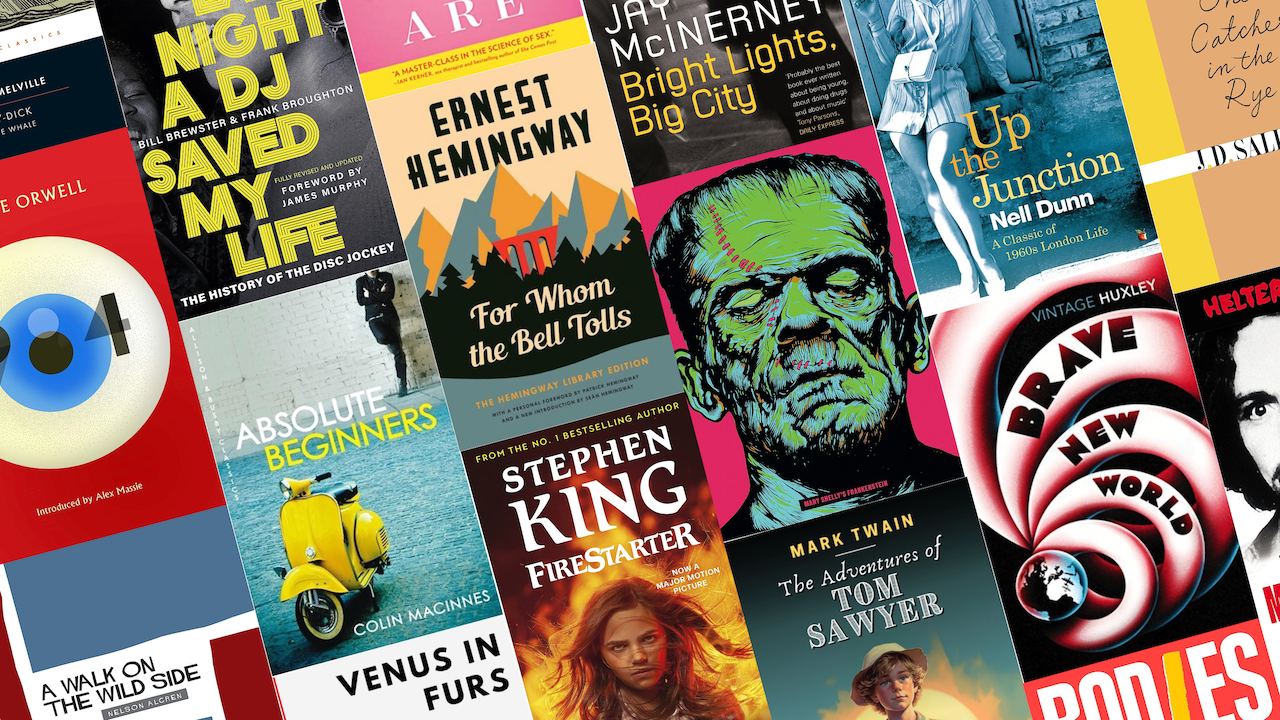About a year and a half ago, I was in a second-hand bookshop when I saw old paperbacks of For Whom The Bell Tolls and Venus In Furs and I thought, “Books with the same name as songs – Songbooks!” and my nerdy book-brain started thinking of other songs named after books – Moby Dick, Wuthering Heights, Absolute Beginners – and then of books named after songs: Bright Lights, Big City, Helter Skelter, Less Than Zero etc.
The obsessive in me was hooked and I started reading those books. Along the way, I stumbled across a hidden history of rock music: How a covert CIA op might have inspired a number 1 by the Prodigy, why Axl Rose hates JD Salinger, David Bowie’s scuppered George Orwell musical, and how Britain's most notorious paedophile Jimmy Saville was also the first ever club DJ.
I read some books I might have missed, discovered some music I wouldn't have listened to and I started posting about them on my Instagram, coming up with theories about John Bonham's penis, why they should stop teaching Dickens in schools, what Come As You Are actually means, and how The Boys Of Summer helped Don Henley airbrush over a PR disaster that would have ended most careers.
Who says books have to be boring?
(Here's a playlist to listen to while you read…)
For Whom The Bell Tolls
For Whom The Bell Tolls
by Ernest Hemingway (1940)
+ Metallica (1984)
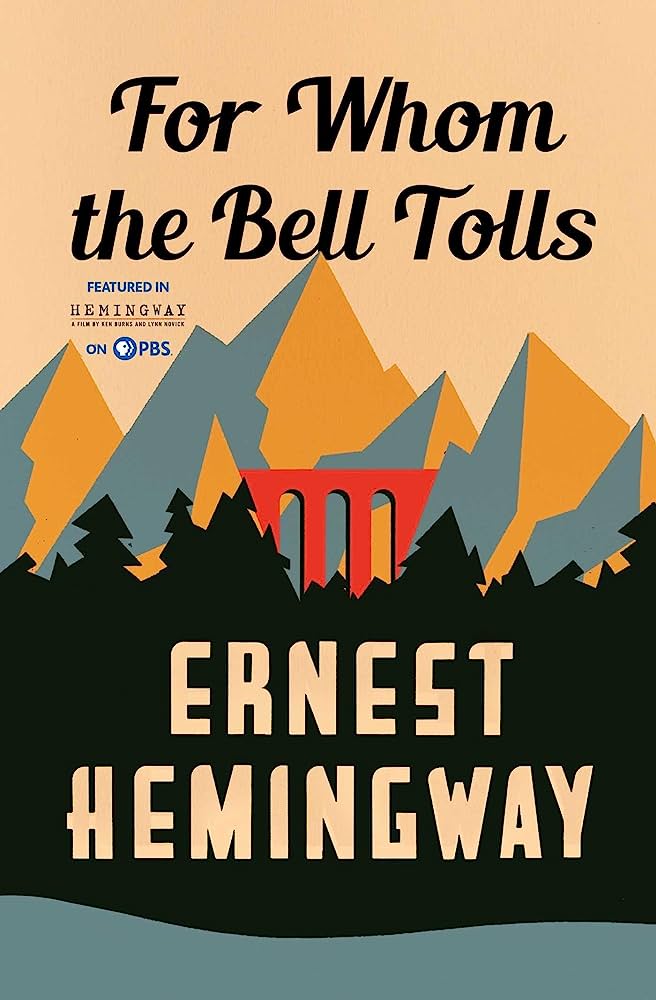
Hemingway’s fourth novel is about an American who joins a gang of guerillas during the Spanish Civil War, hooks up with the only available woman, gets their gang of comrades blown to pieces and then leads them all on a suicide mission to blow up a bridge. Woo! Thanks, America!
I joke. It’s a great book and will make you cry. Hemingway is still the Patron Saint of manly-men-doing-manstuff – even if there are less of those guys around and even fewer of them reading books – but you’d have to be particularly determined to reduce his work to just Alpha male adventuring: matriarch Pilar is FWTBT’s most memorable character and his characters are deep, dude, in a way that whoever puts words in Jason Statham’s mouth doesn’t even dream of.
Metallica’s FWTBT is an angry, unstoppable Statham of a song, with a nightmarish helter skelter riff that sounds like it was built by Escher on a mushroom comedown. The lyrics are based on chapter 27 of the book, when El Sordo’s men are trapped on a hilltop by a fascist division until they are (spoiler alert) bombed-to-shit by planes. But the lyrics aren’t its strength.
“War! It’s bloomin’ ‘orrible, innit?” growl Metallica. And we can all agree on that at least.
Buy For Whom the Bell Tolls at Amazon.
A Walk On The Wild Side
A Walk On The Wild Side
By Nelson Algren (1956)
+ Lou Reed (1972)
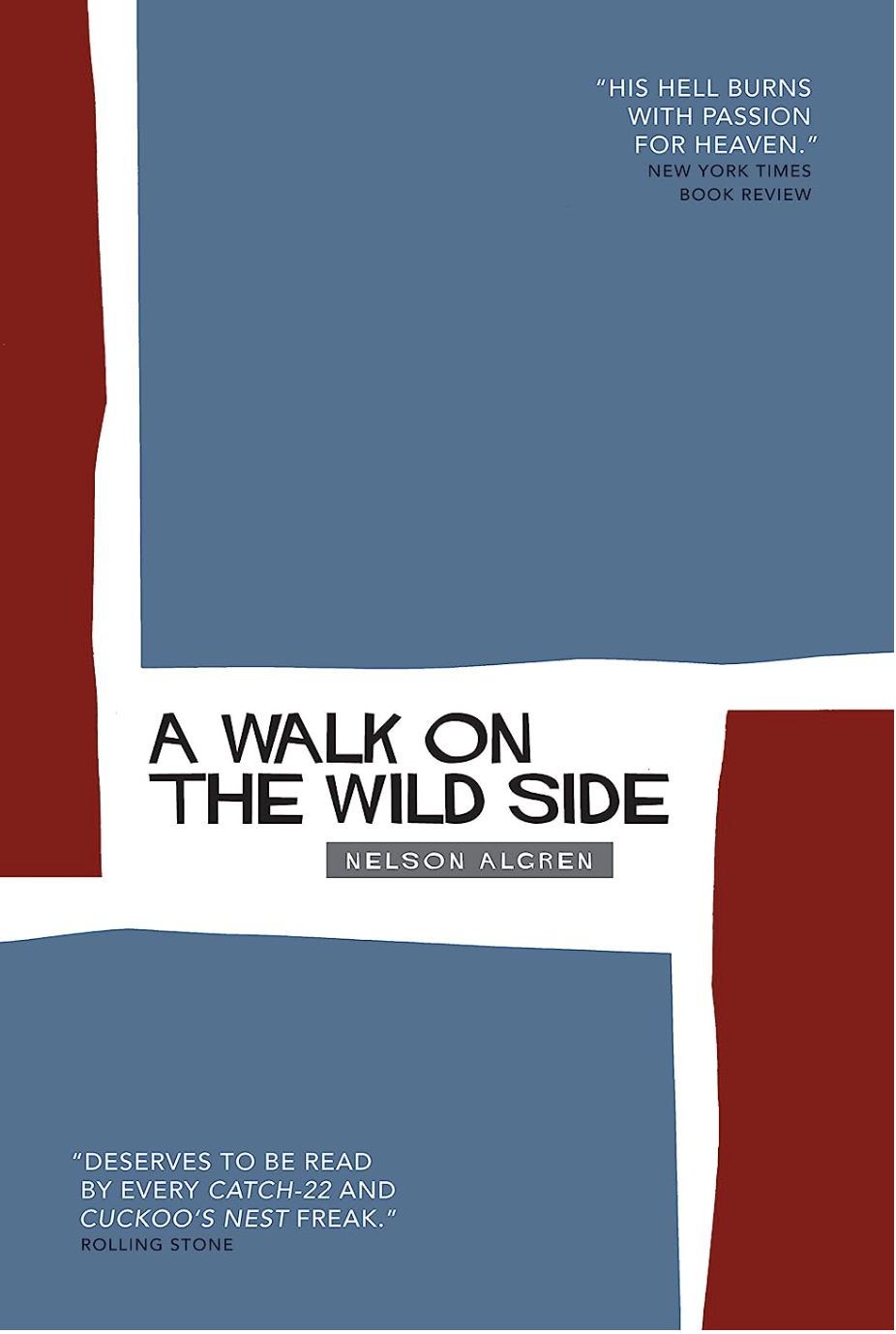
Lou Reed named his song after literary bad boy Nelson Algren’s novella. Like Lou, Algren was feted for writing about the underbelly of American life – his most famous novel The Man With the Golden Arm was about gambling and heroin addiction – and famed for having a fling with feminist writer Simone de Beauvoir.
But forget the book and let’s focus on the real masterpiece. The question is: Can we still like Walk On The Wild Side or should we be OUTRAGED and DISGUSTED by Lou Reed’s culturally insensitive classic?
Recap: When it came out, WOTWS was considered outrageous because of its gay and trans-positive lyrics. But in a fascinating plot twist, recent years have seen the song called out for being possibly transphobic and featuring outdated racist language with the line, “And the coloured girls sing…”
No-one needs some old white guy attempting to mansplain WOTWS, so let’s get this over with quick and hope no-one notices, yeah?
Lou did use the word “coloured” waaay after its sell-by date (well, maybe not waaay after, but it was definitely best before 1972), and he probably did it deliberately, the little tinker. I mean: in 1972, Lou Reed was not known for tender acoustic songs, with jazzy upright bass and soulful backing vocals. WOTWS was precision-engineered to be a glorious slice of subversion, putting lyrics about transsexuals, blowjobs and suicide to gentle muzak that people could play to their mums.
Possibly, Lou used the phrase “coloured girls” as a deliberate anachronism. The line breaks the fourth wall – a self-reflexive, look-at-me-being-cute gag that cues up the BVs – and also works as a cynical commentary on dated, formulaic radio-friendly songwriting, made all the more ridiculous by the fact that backing vocalists Thunderthighs were actually, yup, all white women.
Buy A Walk On The Wild Side on Amazon.
Firestarter
Firestarter
By Stephen King (1980)
+ The Prodigy (1996)
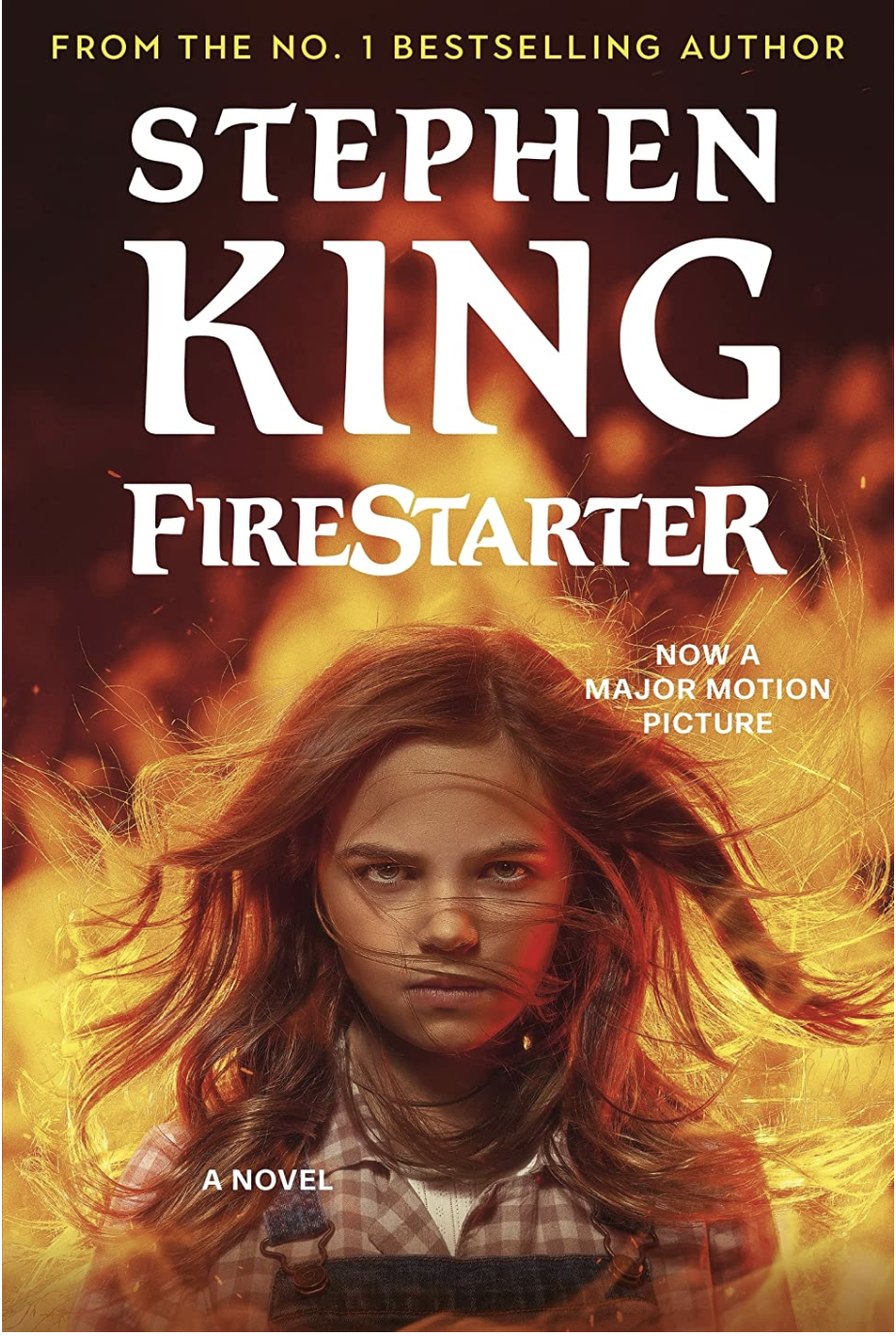
Firestarter was Stephen King’s eighth novel, and has been providing source material for the likes of Stranger Things and all of those girl-with-special-powers-on-the-run-from-the-people-who-made-her movies (Hanna, Lucy) for four decades now.
King himself was inspired by real life source material. Sidney Gottlieb is the most likely inspiration for his head bad-guy Cap. Gottlieb headed up the CIA’s experimental mind-control division MK-ULTRA (and its torture sub-division Artichoke). In 1975, the newspapers were full of stories from The Rockefeller Commission’s report on rogue CIA actions. They revealed that, from the 1950s the agency had being using “expendables” like prisoners and prostitutes, to conduct experiments with LSD and mind control.
People had lost their minds, some lost their lives. Sidney Gottlieb had even dosed his own scientists. One of them, Frank Olsen, jumped – or was thrown – out of an 11th story window a week later.
Firestarter was a horror story, but some of the horror was real.
The Prodigy’s Firestarter is the kind of sonic nightmare you get when you grow up with the knowledge that “the good guys” that protect your freedoms sometimes do it by sadistic torture and brutal murder.
From the book: “When the Manhattan Project group exploded their first atomic device, no one was quite sure what would happen. There was a school of thought which felt that the chain reaction would never end.”
Maybe it didn’t. Maybe Firestarter is the sound of that blaze still burning. It’s fear addicted, danger illustrated, filth infatuated and, surely, one of the greatest UK number 1s.
Buy Firestarter on Amazon.
Bright Lights, Big City
Bright Lights, Big City
By Jay McInerney (1984)
+ Jimmy Reed (1961)/The Triffids (1985)

Bright Lights, Big City is a blues classic by Jimmy Reed, later covered by Them, The Animals and more.
It starts off all woe-is-me (his woman’s been changed by city life: “Bright lights, big city/They've gone to my baby's head”) and then goes all fuck-you defiant: “Oh go ahead, pretty baby/Honey, just knock yourself out…” It’s great but weird: the music is a cheery shuffle and Jimmy sounds pretty fucking jolly for a guy who’s getting dumped.
McInerney’s book takes the song as its setup: The narrator’s wife has left him. He stumbles through 80s NYC, downing cocktails in exclusive bars, hoovering Peruvian flake in the toilets, looking for meaning. When I read it in my 20s I thought it was funny and heartbreaking. This time, I thought the narrator was a prudish yuppie. He thinks the world has gone to shit because children swear and adverts often feature cleavage. (At one point he finds two female friends in a toilet cubicle not – as he hopes – doing lines, but doing each other. “Engaged in an unnatural act” is how he puts it. They invite him to join in. He shrieks and hightails it. I mean, c’mon. That’s just rude.)
The book came out the same year I went to my first ever gig: Echo & The Bunnymen at Glasgow Barrowlands, under 18s matinee, 20 Oct, 1984. I was 13. The support act was The Triffids (named after another book, obvs), making them the first live band I ever saw. The second song they played was called Bright Lights, Big City.
It has nothing to do with the book, or the Jimmy Reed version, although it clearly owes Jim a debt. “Bright lights, big city, burned my baby's eyes,” it goes. “And like a fool, I swallowed my baby's lies”. His baby’s a total wrong ‘un. There’s talk of something sinister she did with a knife, while the music (think The Doors battering The Bad Seeds) bludgeons away and David McComb sings about taking a “strong anaesthetic” to “rinse out my blood”.
I was 13 years old. One taste and I was hooked.
Buy Bright Lights, Big City on Amazon.
Absolute Beginners
Absolute Beginners
By Colin MacInnes (1959)
+ The Jam (1981) / David Bowie (1986)
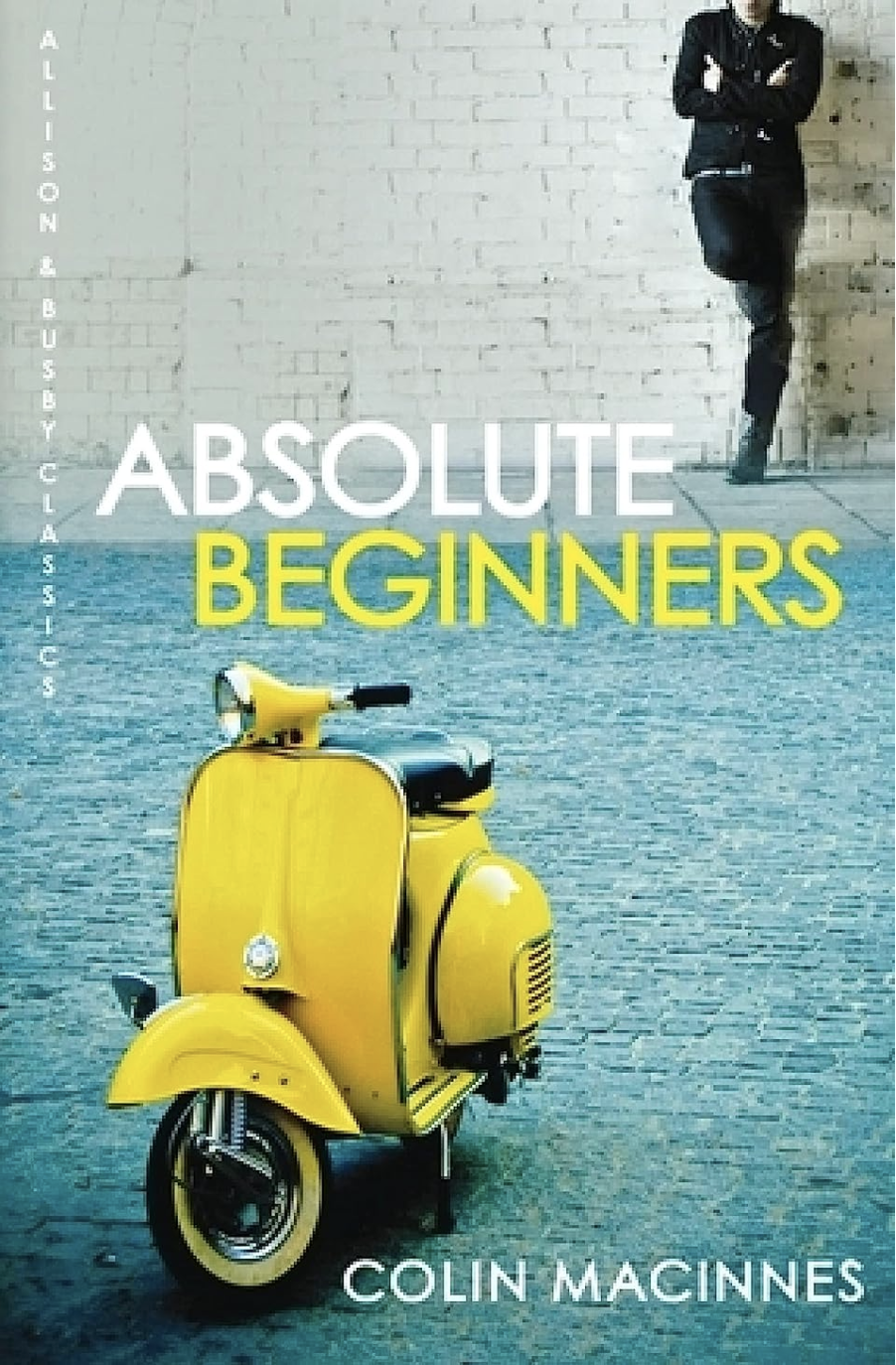
Absolute Beginners is a classic London novel. It has a lot in common with books like A Clockwork Orange or Brighton Rock, even American Psycho (the continual cataloging of who wears what, how they have their hair, and the defining and judging of social groups). Influenced by the Beats, it’s like On The Road in reverse: Where Sal Paradise takes to the roads of America to find himself, the narrator of Absolute Beginners seems to know exactly who he is, and he has no intention of leaving his beloved London. Sal Paradise was a mug, mate.
It’s Paul Weller’s favourite book and The Jam’s Absolute Beginners was their second non-album single of 1981, after Funeral Pyre. It introduced the new soul sound that Weller was looking for. It’s his Should I Stay Or Should I Go as he ponders betting on himself and ending The Jam: “I need the strength to go and get what I want… I stared a century thinking this will never change/As I hesitated, time rushed onwards without me.”
Bowie’s Absolute Beginners was recorded the same day in the same studio with many of the same musicians as his horrorshow collab with Mick Jagger, Dancing In The Streets. With Jagger still in the studio watching, Rick Wakeman goes all Rachmaninoff on the old Johanna, Bowie gives it a good belt and Don Weller (no relation) blows the bejesus out of his sax.
I’ve got it on a 7” from a jukebox. Took it out of there myself. Apparently those old jukes had heavy stylus arms to keep the needle in – the result is that a popular jukebox single warbles, like its grooves are warped or too wide. My Absolute Beginners warbles more than most: they musta been mad for it in The Kings Arms in the spring of ‘86.
Buy Absolute Beginners on Amazon.
Wuthering Heights
Wuthering Heights
By Emily Brontë (1847)
+ Kate Bush (1978)
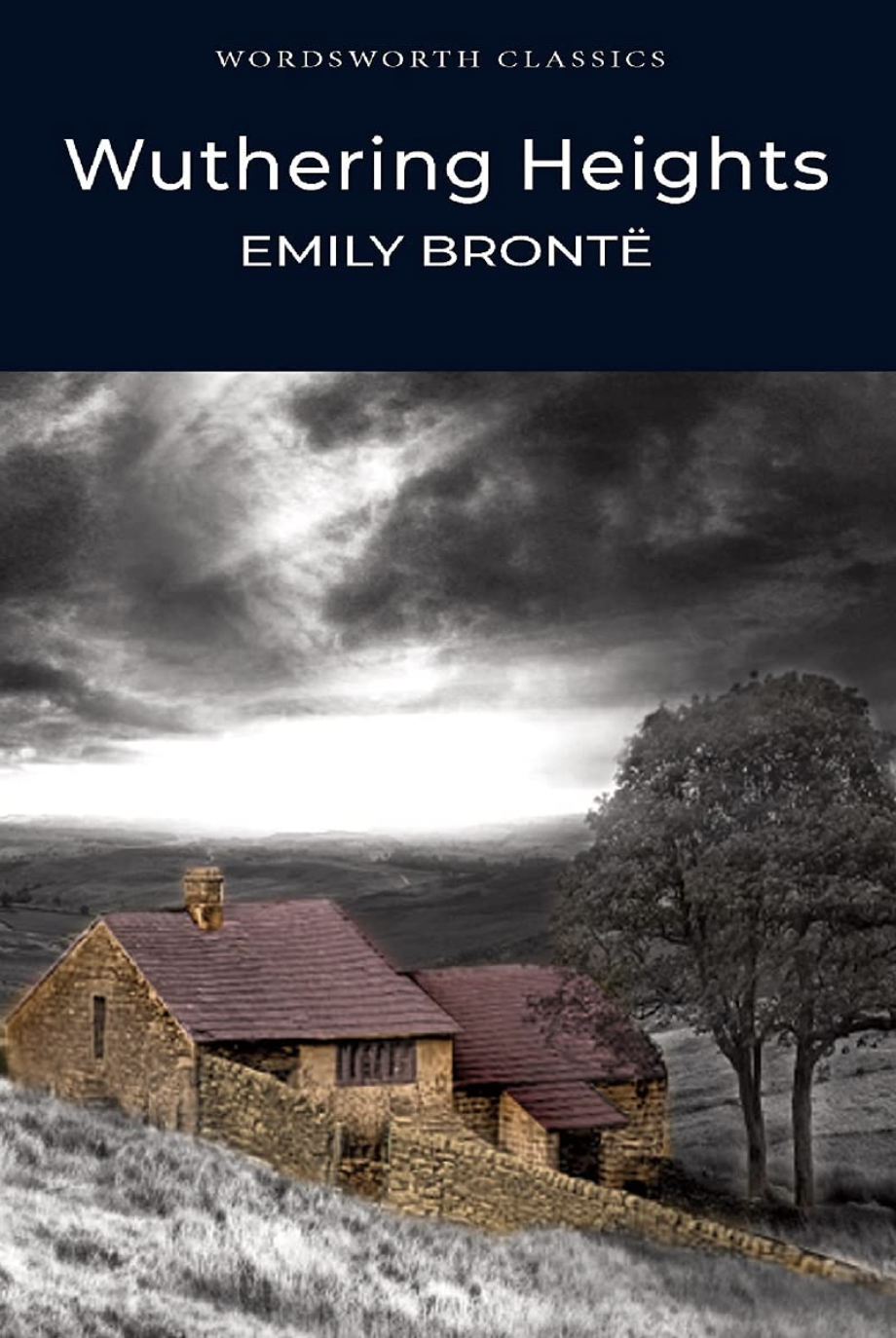
By rights of course, the lyrics for Kate Bush’s 1978 chart-topper Wuthering Heights should go: “Heathcliff, it's me, I'm Cathy/ You remember: that stuck up cow who said she loved you but you weren’t rich enough to marry?/ And then to rub yer fucking nose in it, I married yer arch enemy Edgar?/ Yeah, that Cathy/ Anyway, I’m dead now but I thought I’d come back and ruin your life some more/ Fancy it?” Etc.
But no. Instead it’s all ballet shoes and bullshit warbling and, somehow, the moors are described as “wily”. Wily, FFS!
*shakes fist* “Why you wily moors!”
A loada sixth form am-dram nonsense.
The book’s pretty good though, from what I remember.
Buy Wuthering Heights on Amazon.
Venus in Furs
Venus in Furs
By Leopold von Sacher-Masoch (1870)
+ The Velvet Underground (1967)

Back in 1870, when a glimpse of stocking was looked on as something FILTHY bruv, Venus In Furs was high-grade grumble. Primo bongo. Left-handed literature of the finest pedigree.
The story goes something like this: the narrator confides to his buddy that he’s struggling to achieve erectivation of the old penicular appendation, and he thinks it’s because of a saucy dream he had about being pushed around by a woman dressed only in furs.
His buddy, Severin, advises him to read this dirty book he has. The book reads a bit like it was cribbed from the letters page of Penthouse Forum, March 1984, except without any actual shagging. It’s about this guy who likes getting treated rough by a woman called Wanda. There’s a bit of nipple licking and light bondage and then Wanda runs off with a guy called Alexis Papadopolis (who I think is the singer for Franz Ferdinand).
In the age of 24 hr porn, modern readers may well find the story a little bit tame, but back in the 60s, Lou Reed thought it was well-sexy, and wrote a song about it that some would say also fails to achieve erectivation, and is made even more annoying by John Cale and his fucking viola and Maureen’s terrible drumming, but music journalists LOVED it, didn’t they, like a bunch of students that’d never had a shag, cos it was all deviant sexytime an’ that. Ooh, how exotic.
Bonus Furry Fact: In real life, the object of Severin’s filthy predilections was based on Leopold’s real life crush, one Ms. Fanny Pistor.
Buy Venus in Furs on Amazon.
The Catcher in the Rye
The Catcher in the Rye
By JD Salinger (1951)
+ Guns N’ Roses (2008)
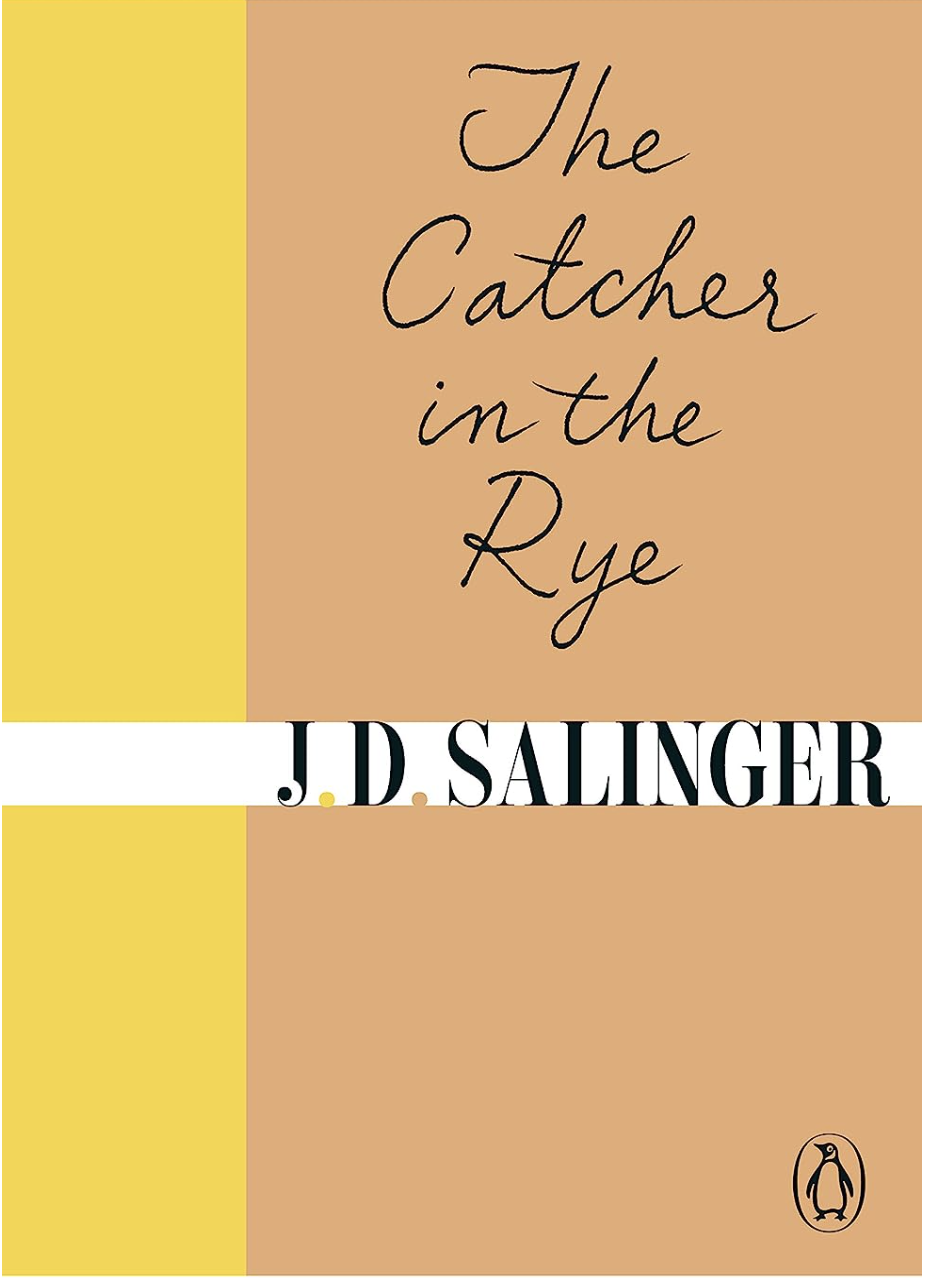
If you really want to hear about it, the title of The Catcher In The Rye actually comes from a song in the first place: a traditional Scottish song set down in 1782, way before all that David Copperfield crap, by Robert Burns. Comin’ Thro The Rye was set to the tune of Auld Lang Syne, and an ode to sexual freedom. If you were to have sex in the long grass, it says, and nobody was to know, then where’s the harm in that?
Holden Caulfield gets the poem all mixed up in his head, thinks it’s about kids like his little sister running through long grass unaware that they’re playing near a cliff edge, and fantasises about being the catcher in the rye, saving them before they fall.
Axl Rose wants to save us too. He’s said that the Chinese Democracy song “is inspired by what's referred to sometimes as Holden Caulfield Syndrome. I feel there's a possibility that how the writing [in the book] is structured… could somehow re-program, for lack of a better word, some who may be a bit more vulnerable, with a skewed way of thinking…”
Catcher has been associated with so many famous murders and shootings (Mark Chapman was obsessed with it, they found it in Lee Harvey Oswald’s home, John Hinckley was a fan etc) that it’s become known, by idiots, as “the serial killer’s book”. Some have suggested that it could be a trigger for assassins brainwashed by MK Ultra (see Firestarter, above) or similar.
Aye right. Mark Chapman was as obsessed by Christianity as he was by Catcher. John Hinckley was obsessed by Mark Chapman. Both were madder than Mad Jack McMad, the winner of last year’s Mr Mad competition.
But nah, it wuz the book wot dun it. Axl addresses Salinger in the final verse: “So now you set the wheels in motion… You were the instrument/You were the one/How a body took a body/And Gave that boy a gun/You took our innocence”.
Those lines, he says, are “a tribute to Lennon and an indictment of the author for writing what I feel is utter garbage and I agree wholeheartedly that it should be discontinued as required reading in schools.
“That's my take,” he says, “I could be completely wrong.“
Buy The Catcher In The Rye on Amazon.
Moby Dick
Moby Dick
By Herman Melville (1851)
+ Led Zeppelin (1969)
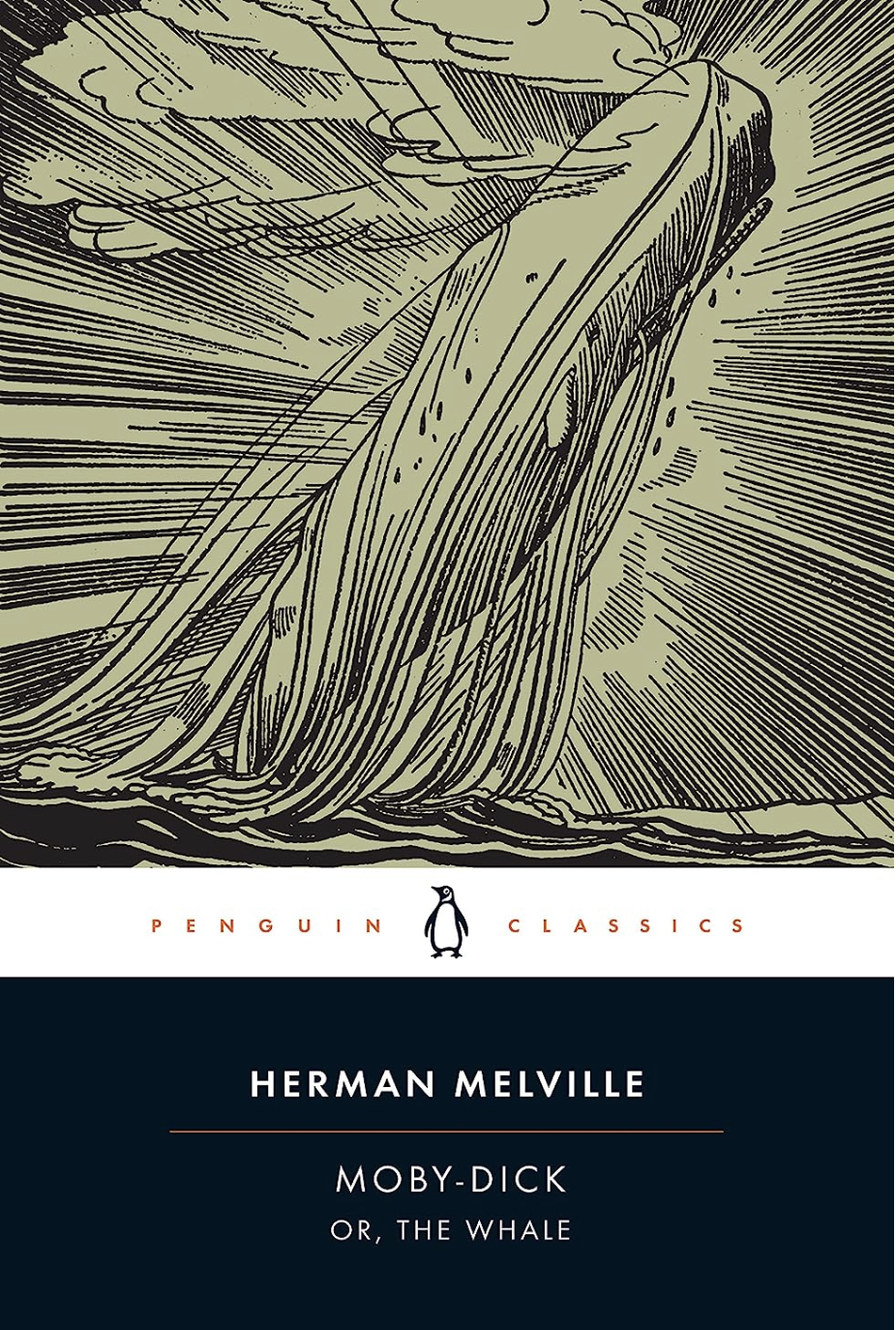
Led Zeppelin's Moby Dick was originally called “Pat’s Delight” after John Bonham’s wife so we can probably assume the Dick reference is less about a whale and more about his willie (ie a brag: “The drum solo? Put it this way: It’s long, like my dick”).
The official Bonzo site doesn’t say so, obvs: “The title Moby Dick was a homage to the great white whale in Herman Melville's novel of the same name,” they say.
“The great white whale” has become a metaphor for obsession, chasing the unobtainable etc, and maybe it is that too: Bonham aiming for the perfect drum solo, and creating an astonishing feat of rhythm and physicality.
I think of it as more of an overstuffed and sickly shit sandwich. Jimmy bookends it with two chunky, freshly-baked artisanal riffs and then Bonham stuffs it full of anything he can think of in a man-hits-stuff endurance test.
It’s like one of those posh sausage rolls that’s all thick herby meat and a thin pastry. They think they’re killing you with kindness, meanwhile you’re left chomping on some weird sludgy gristle and feeling a little bit, well… Moby Dick.
Buy Moby Dick on Amazon.
1984
1984
By George Orwell (1949)
+ David Bowie (1973) / Van Halen (1983)
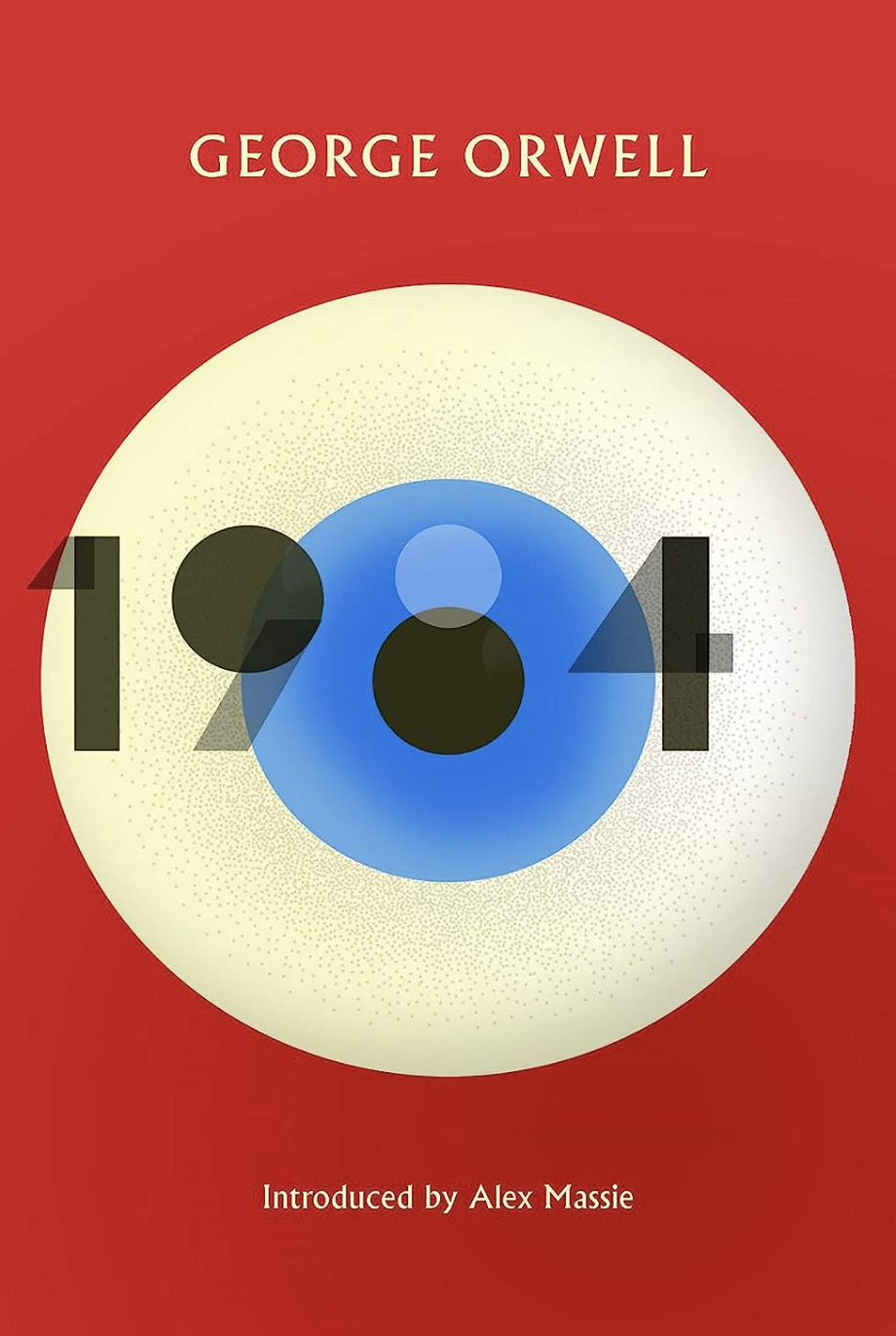
Reading 1984 while war rages in Eurasia/Ukraine does give it an extra frisson but, really, NONE of us have to read 1984 anymore: we’ve all absorbed it by osmosis. Big Brother, Room 101, the Thought Police, doublespeak – they’re not just bullshit in a book anymore, they’re how we’re actually ruled.
Which goes to show you that you have to be careful what you write, cos when it’s something as good as this, people like Putin can mistake it as the Haynes Manual for Oppression, and David Bowie might write a cringey soul/show tune about it.
Side A of Diamond Dogs is a perfect side of vinyl – it has all the drama and dread of the glitter apocalypse Bowie was aiming for, and next level lyrics (“The elevator's broke, so he slides down a rope/Onto the street below, oh Tarzie, go man go”) - but the B-side might as well be an etching. Obviously Bowie would go on to test us with the B-sides of Low and “Heroes” but that was ART. This? This has a silicone hump and a ten-inch stump.
At least three songs – We Are The Dead, Big Brother and 1984 – were directly influenced by the book, and intended for (yikes) a musical until Orwell’s widow put the kibosh on the idea.
1984 has a Isaac Hayes/Temptations feel – Shaft was ‘71, Papa Was A Rolling Stone ‘72 – and you can imagine the idea seeming like a right laugh, marshalling the strings and drama of soul and funk and applying it to Orwell’s loveless terror. But it sounds like musical theatre – not just bad, but doubleungood.
Van Halen’s 1984 is really just an overture to the glory that is Jump, EVH beavering away in his home studio, 5150, pissed off cos Dave Lee Roth had told him to stick to the guitar. Instead, Eddie got himself a keyboard and accidentally came up with their only no 1. Van Halen’s 1984 lulls you into thinking that they’ve gone all Orwellian and then DLR high-kicks into view and you realise it was all a put-on. Nuthin' gets them down.
Buy 1984 on Amazon.
Bodies
Bodies
By Ian Winwood (2022)
+ Sex Pistols (1977) / Drowning Pool (2001)
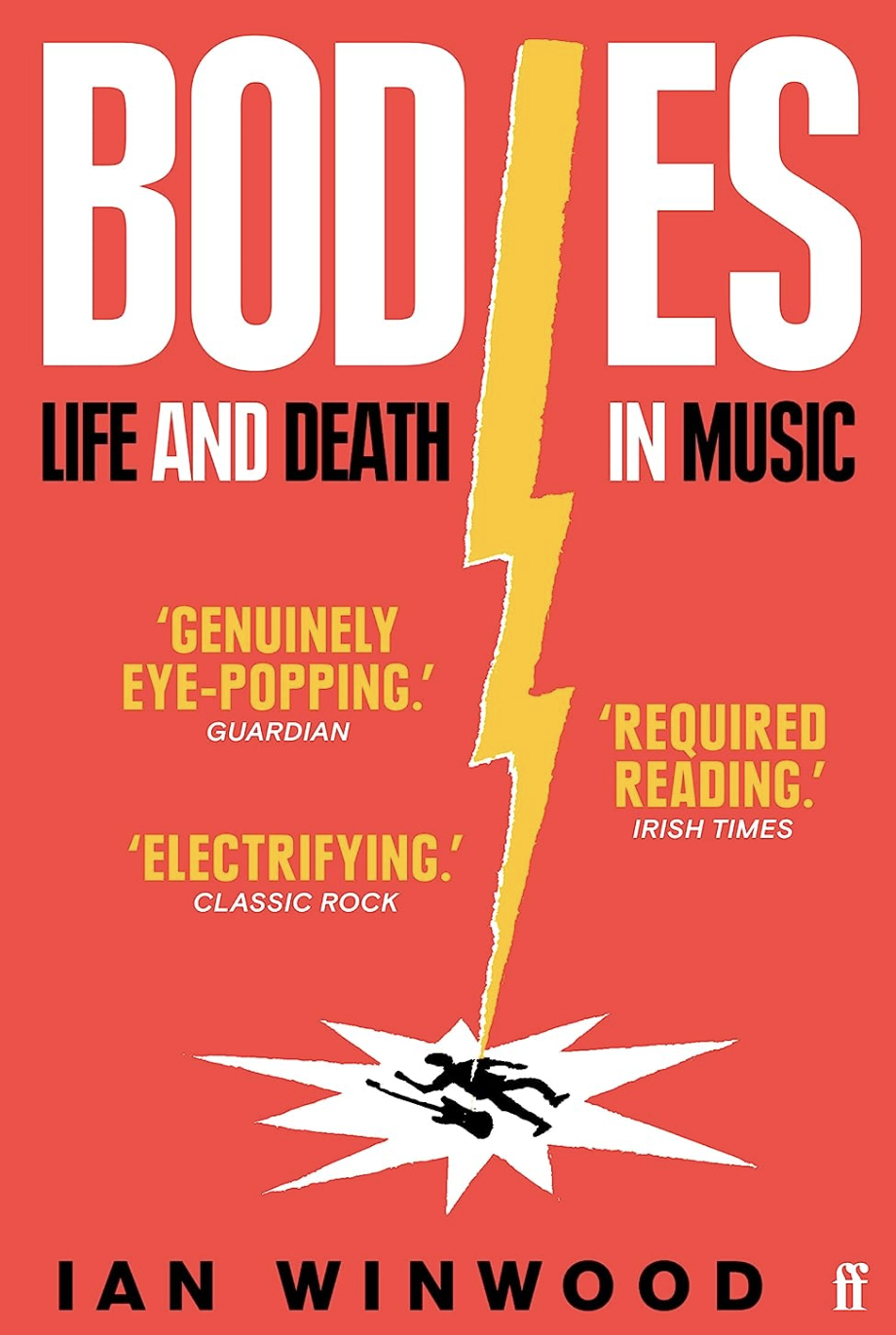
I am on a boat somewhere off the Florida Keys. We are going snorkeling. I am sceptical: the waters off the Keys have more sharks than any other area in the world. Out of the corner of my eye, I see a huge tail fin smash into the water. We drop anchor and I tell our guide. “Ah, don’t worry,” he says, whipping his top off, “it was probably just a nurse shark. It won’t bother us.” And with that, he jumps in.
I don’t even take a minute to think about it. I jump in straight after him.
I’ve marveled about this since. Why did I? And the best I have is: Because he normalised it. He wasn’t scared, and he was an old hand. What could possibly go wrong?
Ian Winwood’s gripping, grim new book is about how the music business normalises, enables, maybe even encourages bad behaviour. You can jump right in, but know this: the sharks are out there, circling.
After decades of writing for Metal Hammer, NME and, most of all, Kerrang!, Winwood looks at the ways the music business kills its young, with stories of drugs, alcohol, stress, pressure, mental illness, abuse, social media pile-ons, all told to him by a cast of now-dead men and some of the bandmates they left behind.
The bodies pile up – Staley, Weiland, Cornell, Bennington and more. There’s a look at the damage Ian Watkins wreaked not just upon children but, in a wider sense, on his bandmates. There’s an insider take on abusive behaviour at his beloved Kerrang! and there are survivors’ tales of breakdowns and recovery.
And, running alongside it all, there’s the very human story of Winwood’s own descent into addiction, triggered by a personal tragedy. Told in his relatable unpretentious northern tone, the book becomes a rock’n’roll version of James Grey’s slightly discredited A Million Little Pieces. In this case the horror is real.
And it’s a story still unfolding: in the gap between writing and publishing Bodies, two of the book’s subjects – Mark Lanegan and Taylor Hawkins – lay dead.
Buy Bodies on Amazon.
In Cold Blood
In Cold Blood
By Truman Capote (1966)
+ Johnny Thunders (1983) / Alt-J (2017)

Truman Capote was a great writer who struggled to find subjects to match his talent. Which is a kind way of saying that fiction wasn’t his strong point* – or at least plot wasn’t (if Capote really had a hand in To Kill A Mockingbird, as rumoured, I doubt that it was anything to do with the story). So In Cold Blood was a gift: he’d stumbled across a true story – who killed the Clutter family and why? – with living characters whose voices he could capture and shape.
He should’ve done more. He sniffed around the Manson case – he knew all the victims at Cielo Drive – that could’ve been something.
In Cold Blood is a road trip, a journey that follows both victims and killers to a room you don’t really wanna go in. Like Ben Stiller’s excellent Escape At Dannemora, it lulls you into feeling empathy for the murderers, then shows you the brutality of their crimes and asks: How do you like them now, Captain Empathy?
Johnny Thunders’ In Cold Blood has thuggish guitars and heartless vocals as Johnny brags about his upbringing on the streets in NYC. Put it this way: you ain’t tough enough. “Well, no one here gets out alive/Living here, it's suicide/Avenue A you might survive/Riverton you'll finally die/In cold blood”.
Alt-J’s In Cold Blood is the second-best song, after Clutch’s 10001110101, to feature binary lyrics. Not only is it awesome, with its clever stop-starty bits and wonky brass section, the video is like No Country For Old Men meets The Gruffalo, complete with narration by Iggy Pop.
*Capote's one perfect work of fiction, Breakfast At Tiffany's, inspired the song by Deep Blue Something, a track about a couple splitting up and trying to work out what they had in common anyway. I know, says the guy, we both liked Breakfast At Tiffany's. Somehow this went to no.1 in the UK in September 1996.
Buy In Cold Blood from Amazon.
Helter Skelter
Helter Skelter
By Vincent Bugliosi & Curt Gentry (1974)
+ The Beatles (1968) / Siouxsie & The Banshees (1978) / U2 (1988)
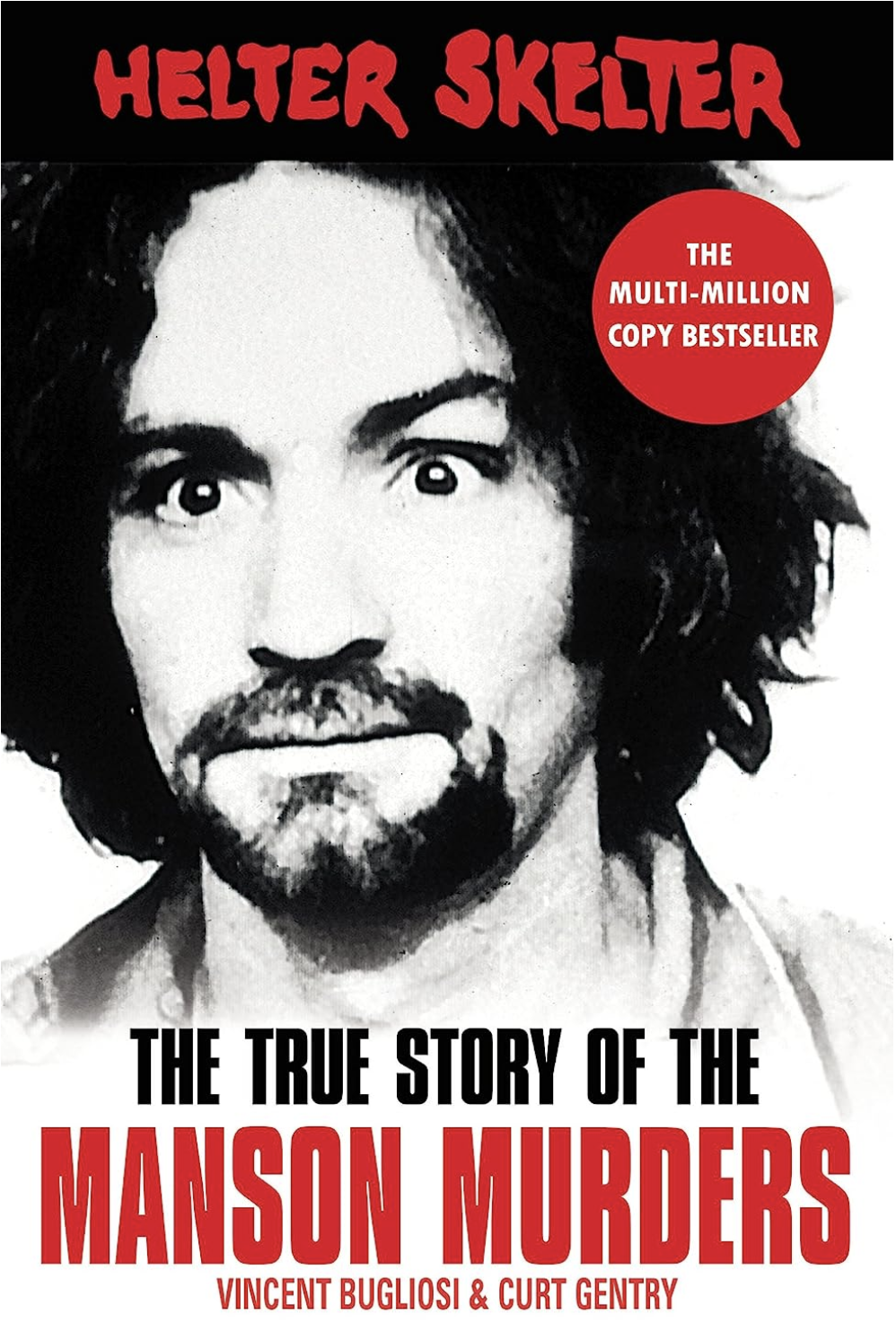
Helter Skelter is the best-selling book by Vincent Bugliosi, the prosecuting attorney in the Manson Family trial, and the main source of the idea that The Beatles’ White Album inspired the Manson Family killings, in particular Helter Skelter, which Manson’s acid-fried brain interpreted as a prophecy of an oncoming apocalyptic race war. The book has been slightly discredited – and Bugliosi’s motives questioned – in recent years (see Tom O’Neill’s 2019 book Chaos for more) but it remains a fascinating account of a dark chapter in US history.
No one needs to listen to U2’s Helter Skelter again but I do have some admiration for Bono’s whole “Charles Manson stole this song from the Beatles – we’re stealing it back!”
Siouxsie & The Banshees never stole it back, that’s for sure. If anything, the Banshees asked Manson if they could try it on for a bit. They liked how it looked on Charlie, all maniacal and sinister, and they thought it’d suit them too. They wore it well, tbf, but it was another piece of bad taste pop theatre from a band with a habit of toying with dangerous symbolism.
Buy Helter Skelter on Amazon.
Great Expectations
Great Expectations
By Charles Dickens (1860-61)
+ Kiss (1976) / Jurassic 5 (2000) / Elbow (2005) / The Gaslight Anthem (2008) / Porcupine Tree (2009)
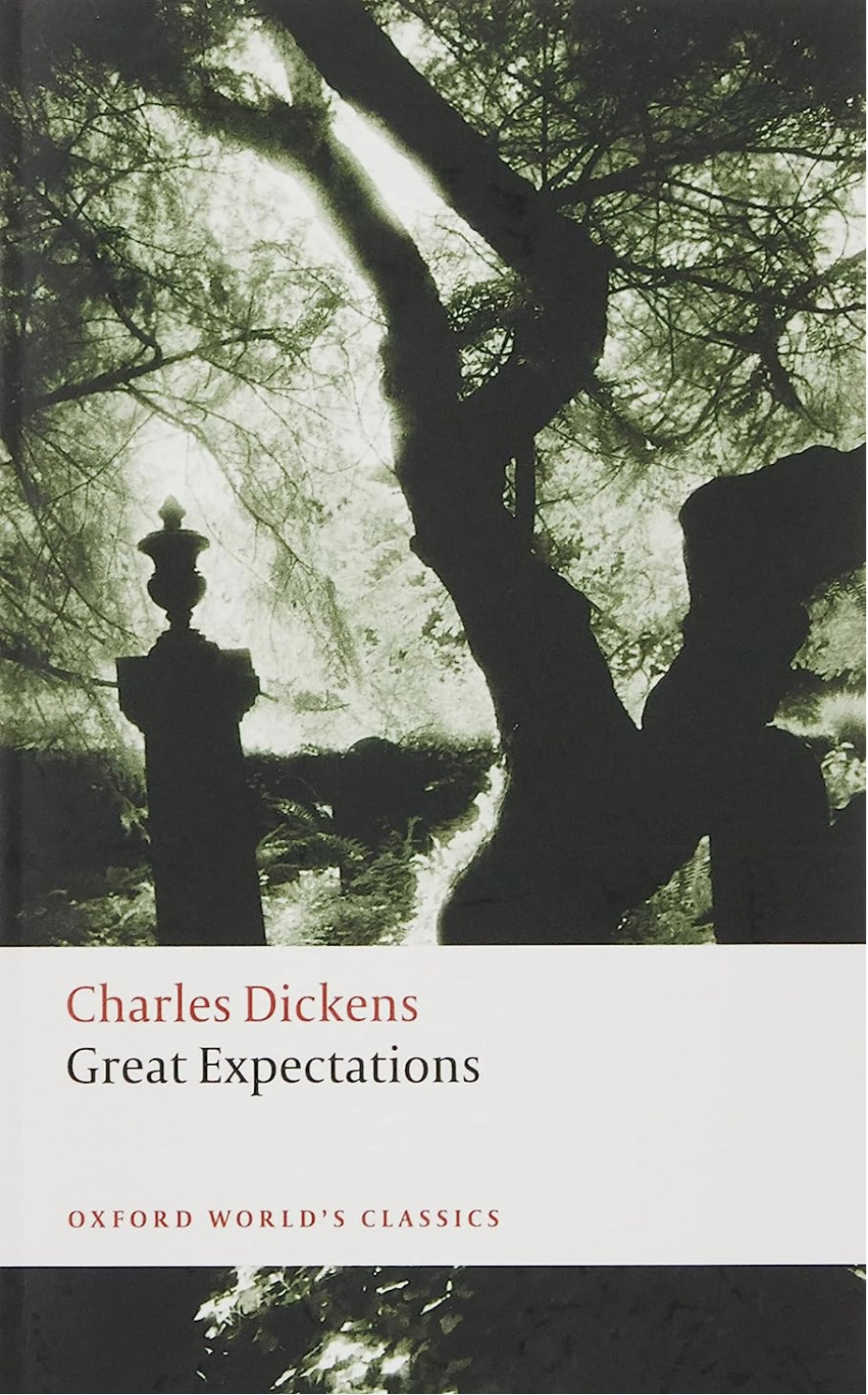
I read Great Expectations for this piece and discovered that a) Dickens is great when he tries to be creepy and suspenseful and b) Dickens is annoying when he tries to be satirical and daft. So the chilling bits with the escaped convict and the spooky old lady get you hooked, and then you have to wade through acres of absolute fucking claptrap.
Mostly what I learned was: they should STOP TEACHING DICKENS AT SCHOOL. Immediately. And fucking Shakespeare. They were geniuses, there’s no doubt. Their contribution to literature is enormous and important historically. But: You don’t get taught to drive in a Model T Ford. If we want kids to read, they need books that speak to them.
The songs? Kiss: Literally a song telling groupies that they’d be lucky if Kiss deigned to shag them. Hokey old Spinal Tap drek.
The Gaslight Anthem: The ‘59 Sound is a great song, but every time I listen to another song by them I am distracted by the fact that it’s not The ‘59 Sound. They’re so beige.
Elbow: To them, beige is a radical shade of brown only used by anarchistic eccentrics.
Porcupine Tree: To be fair, it’s just a sketch of a song in the middle of a concept album.
Jurassic 5: Now we’re talking. A better riff than any of the above. This song is 22 years old. My kids would think that Jurassic 5 sound ancient. Dickens’ Great Expectations has passed its 160th birthday. What hope does it have of speaking to them?
Buy Great Expectations on Amazon.
Up The Junction
Up The Junction
By Nell Dunn (1963)
+ Manfred Mann (1968) / Squeeze (1979)
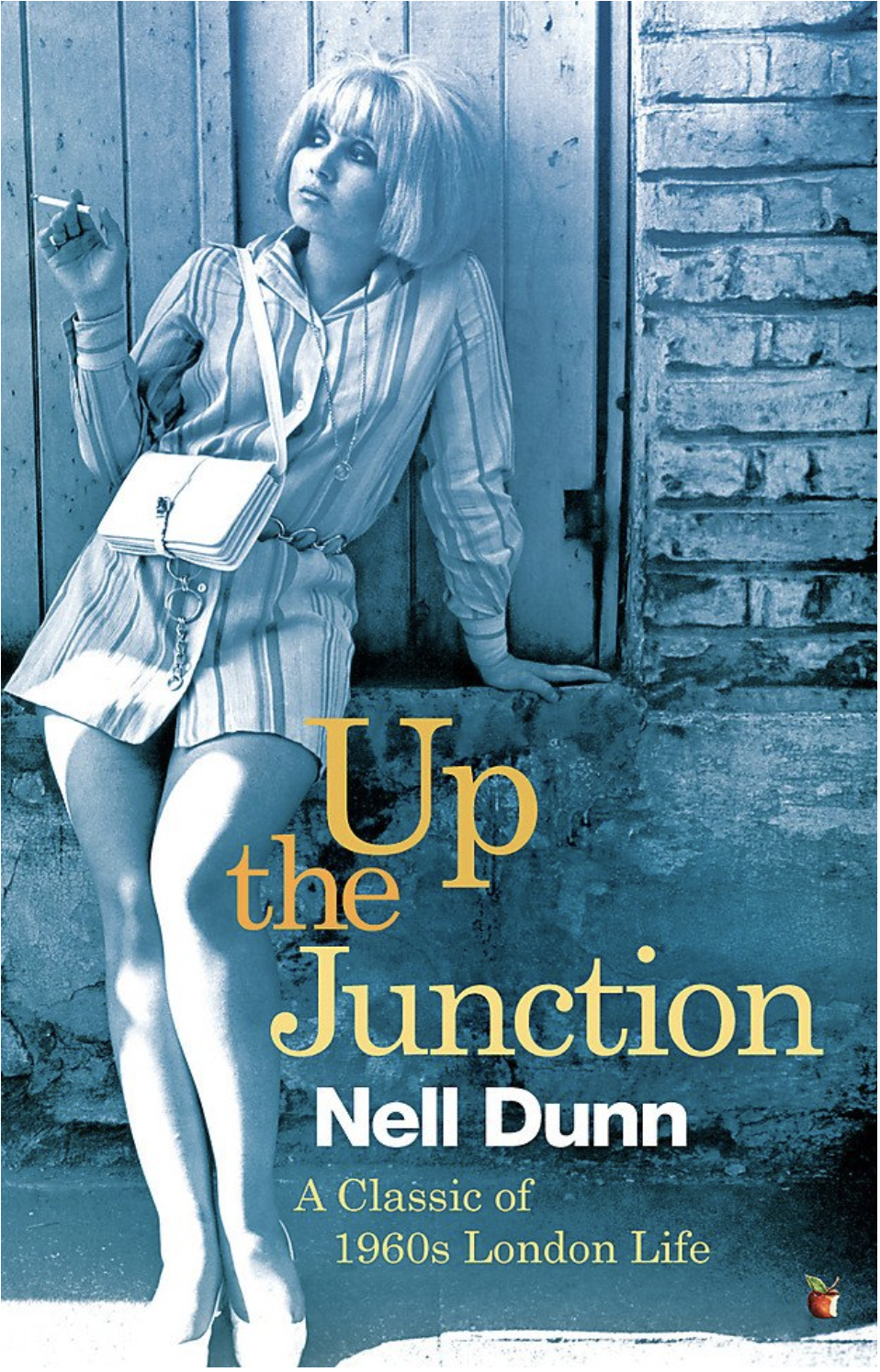
You wait for a chorus that never comes. The verses wind tight the tension. By the time the intro melody returns, exploding into the coda, it makes its story of dead-end lives sound triumphant.
The lyrics span years, often in the same verse: “This morning at 4:50 /I took her rather nifty/Down to an incubator/Where 30 minutes later/She gave birth to a daughter/Within a year a walker”. Up the Junction by Squeeze makes the first 10 minutes of Up seem bloated.
Chris Difford wrote the words in minutes, and Glenn Tilbrook set them to music during a lunch break. “Up the Junction took as long to write as it takes to read it,” said Difford.
“It” is Nell Dunn’s slim book of short stories. Dunn was raised rich but moved to 60s Battersea to smoke some fags and play some pool, knowing that if she called her dad (the baronet) he could end it all.
She didn’t make the call. She’d fallen in with a generation of young working-class women, with nothing much to look forward to except quick shags and good craic, and she captured their words in a series of brilliant short stories, low on plot, high on dialogue.
Was she slumming it? Was it exploitation? You could argue that it was more like journalism. Up The Junction could easily pass for the New Journalism of the 60s. Maybe it would’ve had more integrity that way too. If it has a weakness in the 21st century, it’s that its references to “queers”, “cripples” and the poisonous racism the characters sometimes spout is all left hanging, without any obvious (or even subtle) authorial comment.
Her narrative voice never passes judgement. Which is powerful too. After a failed backstreet abortion, the baby is delivered at home, 5 months in. The 17-year-old mum is taken to hospital. “…But they left behind the baby, which had grown cold. Later Sylvie took him, wrapped in the Daily Mirror, and threw him down the toilet”.
Buy Up The Junction on Amazon.
Brave New World
Brave New World
By Aldous Huxley (1932)
+ Jeff Wayne, David Essex & Richard Burton (1978) / Iron Maiden (2000) / Richard Ashcroft (2000) / Greta Van Fleet (2018)

“Don’t you wish you were free, Lenina?”
"I am free. Free to have the most wonderful time. Everybody's happy nowadays."
It's no surprise that Brave New World has inspired so many songs. It’s set in a world where promiscuity is compulsory, the most desirable women are 'pneumatic', people are ferried by helicopter to sex parties and everyone takes mood-enhancing drugs.
What Aldous Huxley thought was a nightmarish dystopia just reads like an old tour diary to most rock stars.
Jeff Wayne’s BNW is on Jeff Wayne's Musical Version of The War of the Worlds, an album inspired by HG Wells and might well be a kinda literary in-joke: Huxley wrote BNW as a parody of Wells’ utopian novels.
It doesn’t share its title, but the Buzzcocks’ Everybody’s Happy Nowadays came directly from the line from the book (above). Pete Shelley told Record Collector: “It was a Brave New World line, one of the bon-mots in that book. I suppose it’s the same as a lot of popular self-helpism, that idea of positive thinking. If you’re tired of being upset and depressed then change your attitude and you’ll be happier.”
A lot of angry young punks missed the point: “That song upset a lot of people,” said Shelley. “Which I thought was fantastic.”
Buy Brave New World on Amazon.
To Be Young, Gifted and Black
To Be Young, Gifted and Black
By Lorraine Hansberry (1969)
+ Nina Simone (1970) / Bob And Marcia (1970) / Donny Hathaway (1970) / The Heptones (1970) / Prince Buster (1970) / Aretha Franklin (1972) / Big Daddy Kane (1989) / Jay-Z (2003)
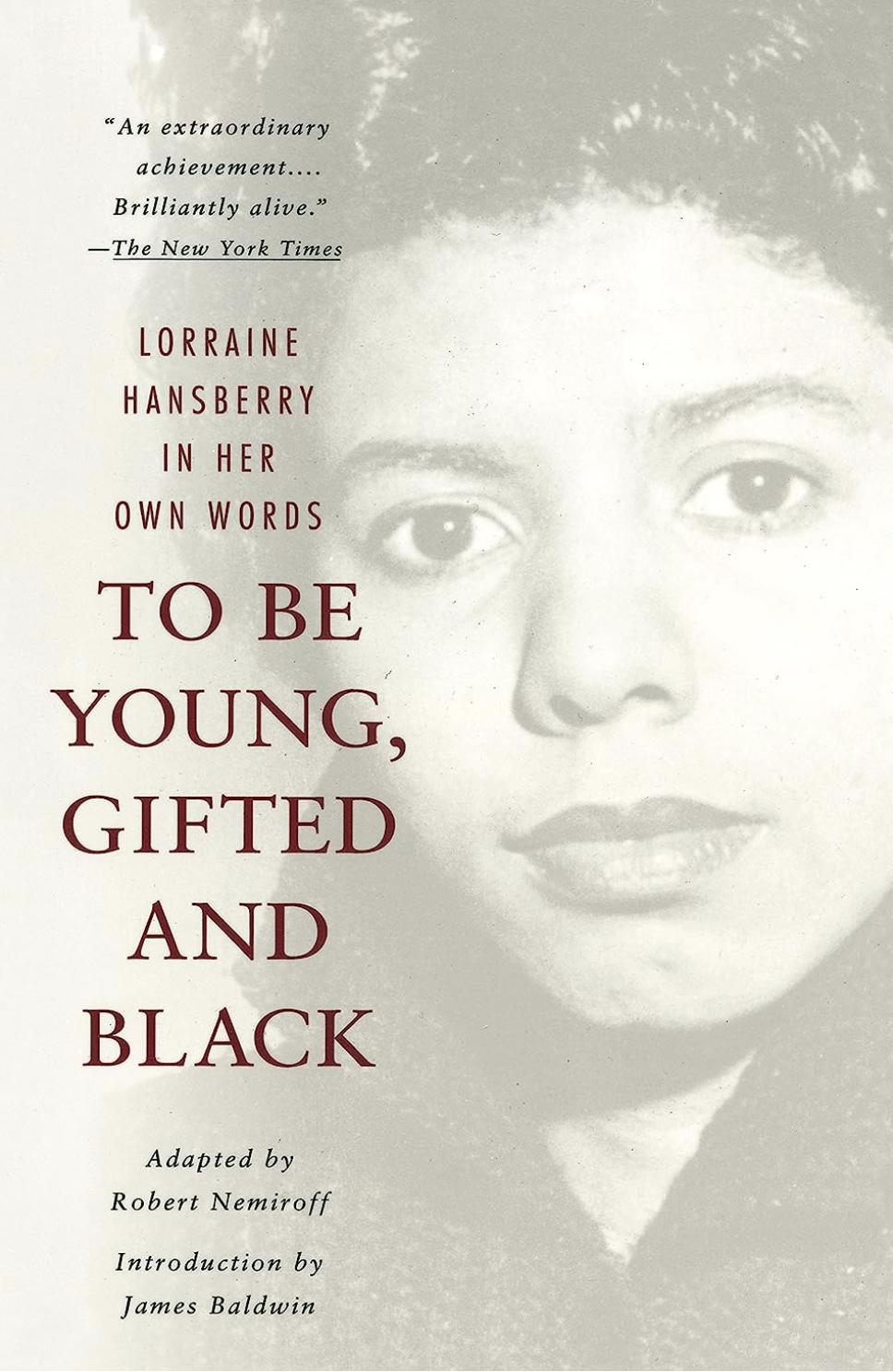
In May 1964, Lorraine Hansberry – an award-winning playwright who was the first black woman to have a play performed on Broadway and whose best-known work, A Raisin In The Sun, had been made into a movie starring Sidney Poitier – stood before a class of black student writers.
“I wanted to be able to speak with you,” she said, “because you are young, gifted and black [and] I, for one, can think of no more dynamic combination that a person might be.
“Write about our people,” she told them. “Tell their story. You have something glorious to draw on, begging for attention. Don’t pass it up, use it. Good luck to you. This Nation needs your gifts.”
Hansberry died from cancer months later, aged 34, and her unpublished writings were turned into a play (and then a book), To Be Young, Gifted and Black.
Inspired, her friend Nina Simone wrote the song of the same name - with lyrics by her musical director, Weldon Irvine - and she debuted it at 1969’s Harlem Cultural Festival, a moment captured in Questlove’s life-affirming 2021 doc, Summer Of Soul.
She released it in 1970, on a live album called Black Gold. “It is not addressed primarily to white people,” she said in her intro, “although it does not put you down in any way, it simply ignores you. For my people need all the inspiration and love that they can get.”
According to James Baldwin, Hansberry believed that “art has a purpose, and that its purpose was action: that it contained the ‘energy which could change things’.”
YG&B has that energy - pride, positivity, love - and it did spur people to action: in 1970 alone there were at least five cover versions, all turning Nina’s slightly mournful tone into something triumphant. It’s hard to beat Bob And Marcia’s version, a top 5 UK hit in 1970. Where Nina, The Heptones etc played the melody on horns, Bob and Marcia brought see-sawing strings and a rhythm section to die for.
Big Daddy Kane used the title for his own song, and sampled the opening brass swells of Albert King’s I’ll Play The Blues For You. It is sampling at its finest - choosing seconds of previously insignificant material and turning them into a powerful hook. “We sample beats, you sue and try to fight us,” raps Kane. “Man, you still be home with arthritis!/If we didn't revive em, bring back alive/Old beats that we appreciated, you wouldn't survive”. He’s right: I would never have heard the Albert King song if it wasn’t for the sample (but I do think Albert deserves some credit).
Jay-Z had toured with Big Daddy Kane and his version first appeared on a mixtape that came free with limited edition S. Carter Reeboks. The Albert King sample is beefed up and ballsier and Jay added his own lyrics, casting himself as America’s worst nightmare: “I'm young, black, and holdin' my nuts like ‘Chyeah!’" And then Maria Carey blows smoke up his arse: “Jay is like the epitome of the American Dream… I think he's probably done things that are pretty much unparalleled.”
I’m not sure that Jay-Z squeezing his balls and selling over-priced sneakers while being heralded as some kinda latter day saint by a pop star is exactly the future that Lorraine Hansberry was looking for, but it would have been inconceivable back in ‘64. It’s not just that he’s a black global superstar, entrepreneur, singer, songwriter, producer – he’s one of many. And that’s at least one measure of a revolution in consciousness that Hansberry helped kickstart.
Buy To Be Young, Gifted and Black on Amazon.
Out Of Sight
Out Of Sight
By Elmore Leonard (1996)
+ James Brown (1964) / Run The Jewels (2020)

The Elmore Leonard book is almost definitely named after the James Brown song. Both are effortlessly cool.
The song was seen as a major step in the transition from R’n’B to funk, mostly by JB himself: "My music – and most music – changed with Papa’s Got A New Bag but it really started on Out Of Sight,” he wrote in his autobiography. “You can hear the band and me start to move in a whole other direction rhythmically.”
Brown’s song is a love letter to “my heart’s delight”: a woman with a shapely figure and a sweet disposition. It’s not sleazy, it’s that word overused so often on social media these days: wholesome.
The Run The Jewels song, by contrast, talks about shagging around, not paying your partner the money you owe her, and includes a litany of pathetic brags like, “Vegan bitches, feed 'em dick 'cause they don't eat no steak and lobster”.
The rest of the song is them bragging about being well-hard by quoting lines from Scarface and Goodfellas, like big nerds. How hard are they? FUCKIN’ NAILS, mate: “Mike shitted in your locker, then left a note with a winky face”.
I’m not being funny, but I don’t think Killer Mike’s arse could FIT in my locker.
And then – presumably while he was squatting up a stepladder trying to squeeze his arse into my locker before leaving a note, THE ABSOLUTE PSYCHOPATH – their “Assistant went shoppin', put my bags in the A8”.
So lemme get this right: we treat women like dirt, we’re dead hard, we leave notes in our shit AND we have an assistant and a fancy car?
I mean, I don’t wanna get all snowflakey on you here, and I know that ridiculous bragging songs go all the way back to the blues, but do fuck off.
Buy Out Of Sight on Amazon.
Night Shift
Night Shift
By Stephen King (1978)
+ Siouxsie & The Banshees (1981) / The Commodores (1985) / Bruce Springsteen (2022)

Siouxsie’s Night Shift shares its title with Stephen King’s 1978 short story collection, a book the Banshees definitely had.
We know they had it because Follow the Sun, the b-side to Spellbound (taken, like Night Shift, from the album Juju), mentions King’s punkily patricidal short story Children Of The Corn (“Watch the children of the corn below/One by one they're following the sun”). It’s not surprising: King had risen to fame in the mid-late 70s and, though popular, was still seen as dark outsider literature. The movies of Carrie and The Shining were unmissable events. Even his book covers seemed terrifying.
Apparently, though, the dark imagery of Night Shift (“Fuck the mothers, kill the others”) was inspired by the real-life horror wrought on the women of Leeds by Peter Sutcliffe. The Yorkshire Ripper was caught in January 1981 around the time of the recording of Juju (which came out in June).
“This news journalist told me that they had a lot of information about the Ripper before he was caught," said Siouxsie (although TBH, I can’t find the source for this interview). "I don't know how true... that he was a necrophiliac, at least while he was a gravedigger, and that was why he wanted to work the night shift."
Night Shift by the Commodores is much nicer and has nothing to do with either Stephen King or bludgeoning prostitutes to death, although the new version by Bruce Springsteen might have you reaching for the ball hammer.
Buy Night Shift on Amazon.
The Number Of The Beast
The Number Of The Beast
By Robert A. Heinlein (1980)
+ Iron Maiden (1982)
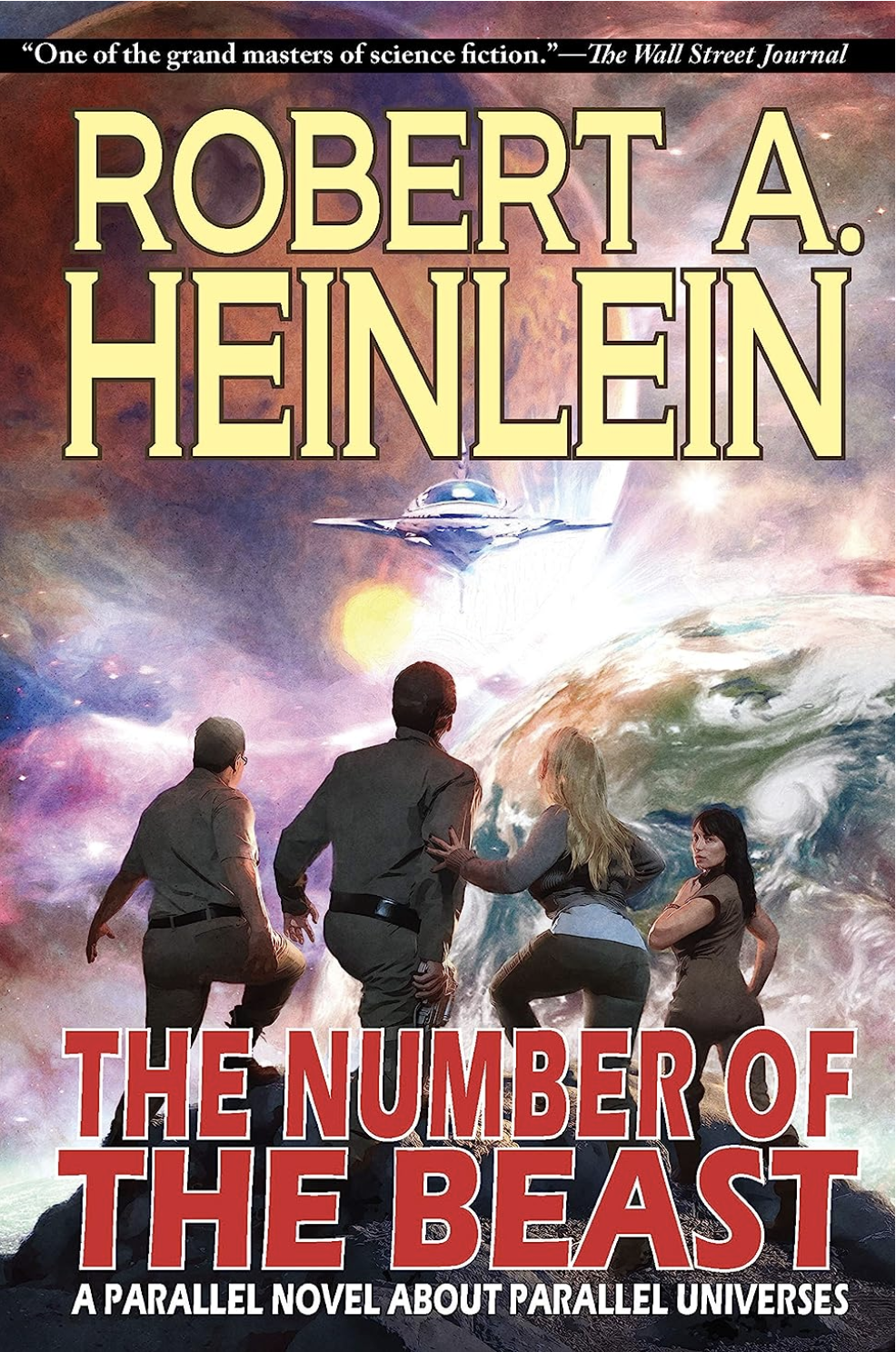
It turns out the number of the beast is not 666 after all, but 616. There’s been some kind of satanic slip-up, a wee miscalculation in the Biblical accounts department. (And it’s not the only one: turns out Jesus was probably born between 4-6 BC. Yeah, he was born Before Christ. Number crunchers: they’ve been fucking up the world since literally the year dot.)
Iron Maiden are the masters when it comes to this whole “songs with the same names as books” thing, with several – possibly hundreds, if the church are counting – of their songs named after books: The Loneliness of the Long Distance Runner by Alan Sillitoe, Where Eagles Dare by Alastair Maclean, Lord of the Flies by William Golding, Childhood's End by Arthur C Clarke, Stranger In A Strange Land and The Number of the Beast by Robert A. Heinlein
The story goes that Beast was actually inspired by The Omen 2, not Robert Heinlein’s book, and it’s believable: the book is a load of ropey old toss with little relation to the satanic etc, while The Omen was a cultural force. When it was first shown on UK TV in 1981, it caused a moral panic. Suddenly everyone knew what the number of the beast was (well, to the nearest 50, anyway) and boys called Damien got well-pissed off with people checking their scalps for numbers.
How do you count the number of the beast anyway? Why would the devil have a number? Is he doing a charity fun run? Does God have a number? (A: Yes, 777, apparently, which makes it look like he’s just copying the Devil’s style. Surely God should be 1, maybe even zero, or 8 with its infinite loop?)
I don’t want to be Mr Controversy here – clearly, people have put a lot of time and effort into the whole religion franchise – but, hear me out on this radical new theory: maybe it’s just a bunch of fucking made-up old claptrap.
Buy The Number Of The Beast on Amazon.
Frankenstein
Frankenstein
By Mary Shelley (1818)
+ The Edgar Winter Group (1972)

Mary Shelley’s Frankenstein is a landmark gothic novel, the first sci-fi novel, an influential horror story, and one of the most boring books you’ll ever be forced to read. It’s not entirely the book’s fault: it’s over 200 years old. There’s been a few spoilers along the way.
Edgar Winter’s Frankenstein sounds like someone playing a 70s cop show theme after downing six pints of cough mixture. Recording They Only Come Out At Night, the band warmed up each day by playing ‘The Instrumental’ with the tape rolling.
Producer Rick Derringer decided that maybe they could re-heat the warm-ups by editing them together. There was tape all over the studio, and drummer Chuck Ruff saw them stitching it together: “Wow, man,” he said, “it’s like Frankenstein.”
The song became a US and Canadian no.1 – everyone was drinking cough mixture back then and needed a soundtrack – and the record company wanted more: “They went: ‘Great!'" remembered Edgar. "'Now you can do Dracula! And the Wolfman! Then they can all meet and you can have this big monster rock party!’ I’m like, no. That’s not going to happen…”
Buy Frankenstein on Amazon.
Brighton Rock
Brighton Rock
By Graham Greene (1938)
+ Queen (1974)
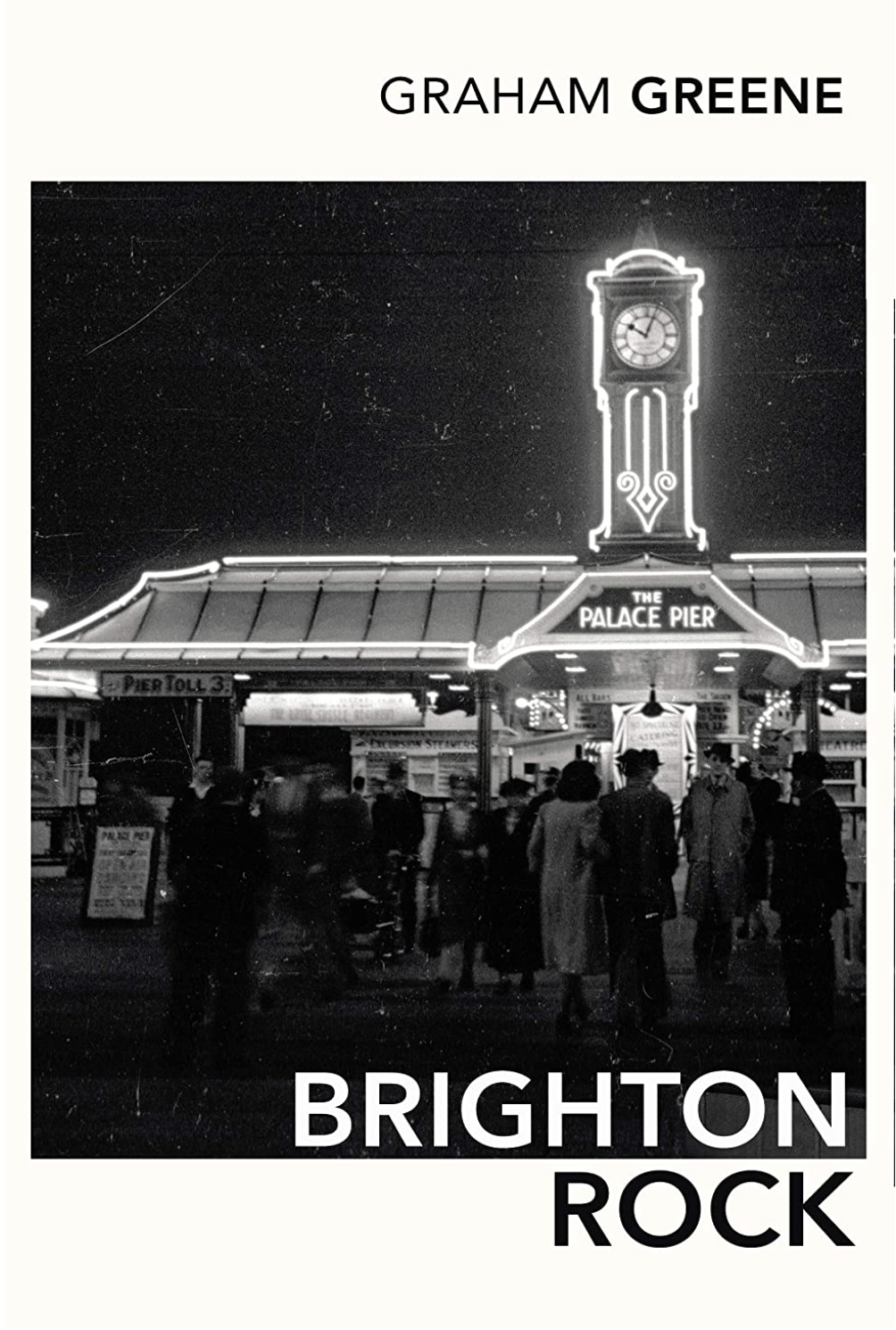
The first time I went to Brighton, I got off the train and needed to pee, so I went to the public toilets. I’m standing at a crowded urinal when this guy comes in with some urgency. He tries the cubicals. They are engaged.
“Oh my god,” he says and starts undoing his belt. “Oh my god, ohmigod, ohmigod-”
He is whipping his trousers down and backing against a wall. “I’m sorry guys,” he says to all of us at the urinals. “Oh my gawwwwd-” And then he sprays liquid diarrhoea all up the wall and all over his shoes.
He was in some state, the poor fella. I suspect drugs were involved.
Pinkie, the lead character and villain of the Graham Greene novel, is – like the candy stick of the title – Brighton to the core. Which is to say, a total shit. And like my unfortunate pal in the public lav, he’s also a man prone to appealing to a higher power: If he keeps on thieving, brutalising and murdering, is it possible, oh Lord, that he can still avoid damnation? Like, on some special Catholic technicality maybe?
The Queen song, with lyrics written in faux folk song olde English, was written by Brian May and has nowt to do with the book. “The lyrics were actually based on a romance I had in Brighton,” he told Uncut. “Me and Roger went down to Brighton and met two girls.”
But it does have a religious reference: “Oh, Rock of Ages/Do not crumble, love is breathing still,” goes the chorus. The Rock of Ages is a biblical term that, as you know, referred to the everlasting strength granted to those with faith in Our Lord.
But in this case, I think we can safely assume that it's about Brian's boner.
Buy Brighton Rock on Amazon.
Less Than Zero
Less Than Zero
By Bret Easton Ellis (1985)
+ Elvis Costello (1977) / The Weeknd (2022)

Less Than Zero was Elvis Costello’s first single. He wrote it, he said, “after seeing the despicable Oswald Mosley being interviewed on BBC television. The former leader of the British Union of Fascists seemed unrepentant about his poisonous actions of the 1930s. The song was more of a slandering fantasy than a reasoned argument."
The slander is presumably the suggestion in the lyrics that Mosley would take boys to bed and made dirty movies with “his sister” (in reality it was more likely to have been his wife’s sister: Mosley had a long-term affair with his wife’s younger sister – a teenager at the time – AND, to complete the pack, their stepmother too). As his fellow Tory MP Stanley Baldwin said at the time: "He's a cad and a wrong'un."
In the chorus, while Oswald babbles on the TV, a young couple screwing in the next room turn up the volume so their parents can’t hear. Sex, fascism, transgressive behaviour, intelligent pop: it was right up Bret Easton Ellis’s street.
“Why did I name my first book after an Elvis Costello song? Who knows?” he said. “I was like most white, upper-class educated boys: I was obsessed with Elvis Costello. That was his main audience in the US. That title seemed very evocative to me.“
Costello once took the piss out of BEE in the press. It stung the author. “I was 22 and I was insulted by my idol. That was a moment. It makes you grow up fast.”
Buy Less Than Zero on Amazon.
Lost In Music
Lost In Music
By Giles Smith (1995)
+ Sister Sledge (1979) / The Fall (1993)
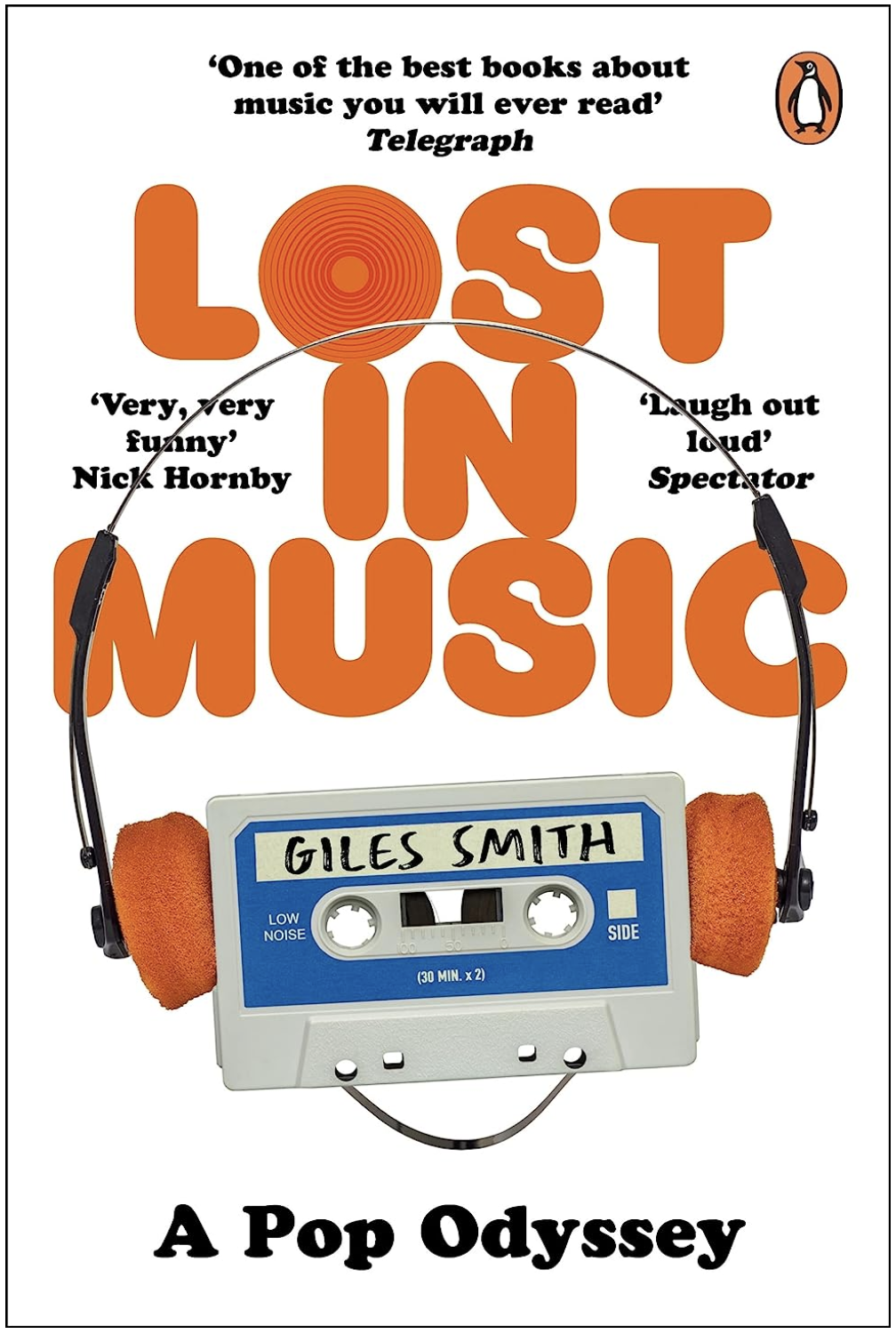
Giles Smith’s Lost In Music caused a bit of a stir when it came out in 1995. It’s hard to imagine now that we’re balls-deep in them, but back then these music-fan memoirs/pop picaresques/failed-band-member bildungsromans were a rarity. Lost In Music was seen as a music version of Nick Hornby’s million-selling Fever Pitch, with bands instead of balls.
Nowadays, of course, everyone who ever wrote for the NME has a book out that goes something like:
Chapter 1-5: Mum and dad were twats. We were poor! Of all the decades to grow up in, I got the 70s! Godsake.
Chap 6: I had to get a paper round. The ignominy! Does no-one realise how sensitive and talented I am?
Chap 8-9: Saw David Bowie/T. Rex/Slade on TOTP. Eu-fuckin-reaka.
Chap 10-15: Packet of Spangles, can of Sweetheart Stout, 20 Benson, weren’t-Bounty-Bars-bigger-back-then, got a nice jacket, fingered Mary from the Catholic school.
Chap 16-18: My mate Dave asked me to roadie for his shit band/write for his shit fanzine.
Chap 19-25: I’m a genius!
Chap 26-27: I’m a drug addict.
Chap 28: I’m in recovery/a bit of a tit/own a record label/filthy rich. But I don’t like to go on about it.
Anyway, Nick Hornby’s High Fidelity came out the same year and instantly made Lost In Music look dull, IMO. Hasn’t stopped everyone copying it ever since, like. I hope Mr Smith gets royalties.
Buy Lost In Music on Amazon.
High Fidelity
High Fidelity
By Nick Hornby (1995)
+ Elvis Costello (1980) / Daft Punk (1997)

Back in 2003, EMAP (then publishers of music magazines Q, Mojo and Kerrang!) did some market research and identified four distinct types of music fans:
The Indifferents: Might listen to music on the radio but wouldn’t care if music was banned tomorrow. They are 50% of the population, the soulless freaks.
The Casuals: They like music but other things are more important to them - sport, clothes, TV and that. Boring bastards. 25% of the population.
The Enthusiasts: Music is a key part of their life but is balanced with “other interests”. These part-timers make up 15% of the population.
And finally, and I take objection to this title, because although it’s derived from the French word ‘savoir’ meaning 'to know’, it is usually prefigured by the word ‘idiot’…
The Savants: People who live and breathe music. Who dress a certain way because of it, who plan holidays around tours and festivals, who have vinyl and CD collections, who obsessively make playlists, are intolerant of the music tastes of others, who play an instrument (or wish they did), who can recite the running order of Ziggy Stardust and tell a Barney Bubbles from a Roger Dean at 100 paces. You know the type. They – we – make up 10% of the population (or did in 2003).
High Fidelity is about that last lot, about a guy trying to move from Savant to Enthusiast and become a fully-functioning grown-up. I think it is, anyway. I read it in 1995 and can barely remember it.
It’s the way of things. Last week I interviewed someone about music they made in the 70s and they could barely remember it. I was literally talking them through songs that they made – songs that mean the world to Savants everywhere – and… nothing. And I get it: it was almost 50 years ago, it was work, there’s been a lot of water under the bridge etc.
But it’s disappearing, all this stuff. Soon The Savants will be the only people who know it, and we’ll have gotten it all wrong, a load of Chinese Whispers, half-remembered from old music papers.
Buy High Fidelity from Amazon.
Tom Sawyer
Tom Sawyer
By Mark Twain (1876)
+ Rush (1981)

The Goonies, Stand By Me, Stranger Things: it’s impossible to imagine so many modern day kids adventure stories without Mark Twain’s The Adventures of Tom Sawyer. Funny, clever, creepy: to those of us who are old enough to have read it (or an abridged version of it) or caught a TV version in the 70s or 80s, Tom Sawyer is the archetypal kids story. The book has it all: mischief, murder, runaways, stolen gold, creepy caves – and, of course, a whole load of the casual racism of the times.
Rush’s Tom Sawyer takes the character's free spirit as its inspiration and not a lot else. Mark Twain’s novel is one of the first written on a typewriter. Rush’s song was one of their first written with synthesizers and the first time Geddy Lee swapped his trademark Rickenbacker bass for a Fender – the song helped define the sound they had for much of the 80s.
Buy The Adventures of Tom Sawyer on Amazon.
Last Night A DJ Saved My Life
Last Night A DJ Saved My Life
By Bill Brewster and Frank Broughton (1999)
+ Indeep (1982)

Did you know that Jimmy Savile was the very first club DJ, pioneering the whole concept of entertaining a roomful of people by just playing records? “The world’s first disco,” he told Bill Brewster and Frank Broughton, “took place in the top room of the Belle Vue Road branch of the Loyal Order of Ancient Shepherds [in Leeds].”
It was the old world making way for the new – a world in which you could dance to the Glenn Miller band for one shilling, even though they weren’t in the room.
“As I played the records,” said the man who would be posthumously outed as Britain’s most notorious sexual predator and necrophiliac, “I felt this amazing… power’s the wrong word, control’s the wrong word. There was this amazing effect. What I was doing was causing 12 people to do something. I can make them dance quick. Or slow. Or stop, or start. All this was very heady stuff.”
And in retrospect, massively creepy.
In Jamaica, music was driven by DJs and producers more than musicians. They invented the remix, the dub mix, toasting, they fetishized the sound system. And it travelled: Kool Herc, founder of hip-hop, was Jamaican and wanted to create a version of Kingston in New York.
Brewster and Broughton’s theory is “that DJs are more important than bands when it comes to radical shifts in music” and from Saville to the superstar DJs of the 90s, they chronicle the key steps, from the acid tests to acid house, Northern Soul to Norman Cook.
The Indeep song wasn’t the hit you might expect. It went to no.13 in the UK but only managed no.101 in the USA, the victim of the disco backlash when a few dickhead DJs, concocted a rock vs disco battle between The Knack’s My Sharona and Chic’s Good Times. Chic hit No.1 first but the damage was done: the Disco Sucks campaign was in full swing. Last night a DJ cocked up Indeep’s life.
Buy Last Night A DJ Saved My Life on Amazon.
A Fairytale Of New York
A Fairytale Of New York
By J.P. Donleavy (1973)
+ The Pogues (1987)
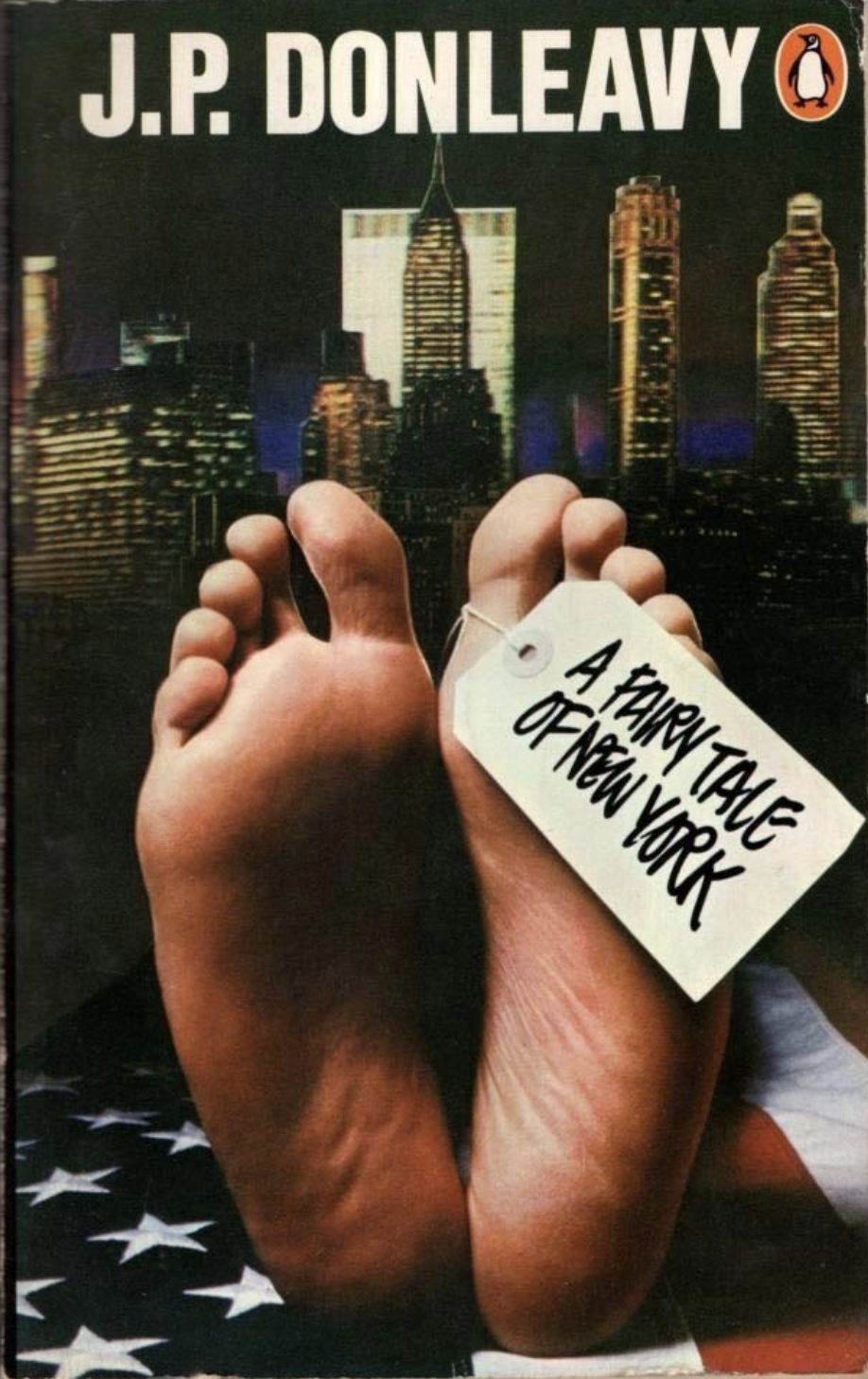
Words are stupid, aren’t they? People get upset about them, social media bans them, radio stations edit them, right-wing maniacs use them as ammo, and suddenly we’re all embroiled in a Xmas culture war where the main victim is a song once prized for its empathy. Fuckin’ words.
The Pogues were left-wing and left-field: a punk-folk band singing songs about the working class with poetry, rage and humour. Fairytale is seen now as establishment – sentimental mush with added gay-bashing – but to a generation brought up on genuinely trite Xmas songs, it was gloriously obnoxious and real.
Of course, the problematic word is homophobic. The song isn’t – in the same way that a film can have a racist character without being a racist film – but Kirsty’s character is trying to offend. It’s a slur she throws at her other half, an insult meant to wound, a reaction to being called “an old slut on junk”. They’re having an argument, saying stupid hurtful things.
It was never an issue, mostly because we all knew The Pogues weren’t homophobic. The Old Main Drag, on their second album, was sung from the POV of a rent boy, and based on Shane‘s experiences as a hustler giving men handjobs-for-cash.
Pogues guitarist Philip Chevron was openly gay. If their mad-as-fuck male audience had a problem with that, you couldn’t tell from the way they sang along with him on Thousands Are Sailing.
According to Shane MacGowan, Fairytale Of New York took just hours to write – but it took years to get right. Jem Finer had a crack at it and then MacGowan took that and knocked it into shape. “All I had was a little riff from Jem,” he told me, “which was ripped off from my own song The Broad Majestic Shannon anyway. And it just came in a blinding flash of inspiration.”
But the Elvis Costello-produced demo didn’t work and when Cait and Costello quit, they were left looking for the right female voice. Incoming producer Steve Lillywhite recorded his wife Kirsty MacColl at home and it clicked. James Fearnley worked on the arrangement and the piano and vocal melody channel Morricone’s score for Once Upon A Time In America, a band favourite. Jem was reading JP Dunleavy’s book at the time.
(The book is a black comedy: a guy arrives in New York with the body of his wife who died on the boat over. He has no money to bury her, so to pay off his debts he goes to work for the funeral director. Next thing you know he’s falling into bed with wealthy widows and remembering gay sex with the ship’s cook back in his navy days. JP writes in. Short sentences. No conjunctions. Barely a comma. It can be annoying. JP was mates with Behan and the book is lewd, violent and foul-mouthed. Much like The Pogues.)
Shane once said that both characters in Fairytale were versions of himself. "I identified with the man because I was a hustler and I identified with the woman because I was a heavy drinker and a singer. I have been in hospitals on morphine drips, and I have been in drunk tanks on Christmas Eve."
Buy A Fairytale Of New York on Amazon.
Lust For Life
Lust For Life
By Irving Stone (1934)
+ Iggy Pop (1977) / Lana Del Rey (2017)

The first time I heard Iggy Pop's Lust For Life was 1992, somewhere in Mazarron, Spain, and I sneered at my mate that it sounded like You Can’t Hurry Love. He shrugged: Like, duh. The next time I heard it was four years later, Mark Renton was sliding off the bonnet of a car, and it was the most exciting thing I’d ever heard in my life. I’m slow on the uptake sometimes.
Drummer Hunt Sales said that he based the beat on You Can’t Hurry Love, George of the Jungle, “and Armed Forces Radio in Germany which is something I heard a lot while living In Berlin with Iggy and David.“
Iggy said: “We had one television show a week [in Berlin] in English. It came on the Armed Forces Network, and [the ident was] a cartoon of a Radio Tower, and the tower went ‘beep beep beep, beep beep be-beep… beep beep beep, beep beep be-beep’ and [Bowie] just picked up the ukulele and said, ‘Record this,’ and he just started playing the changes, and then he said, ‘Call that Lust for Life’.”
I thought that Irving Stone’s Lust For Life – a novelised biography of Van Gogh’s life – was a favourite of Jack Kerouac’s for some reason, but all I can find are references to the fact that both Irving and Jack were rejected by publishers (Lust For Life was rejected 16 times – it went on to sell 25m copies) and an interview with fellow Beat poet Allen Ginsberg in which he states that the phrase is the kind of tired old cliche that he’s “at swords-point with”: ie trying to avoid in order to keep his language fresh and poetic.
Lana Del Rey doesn’t just embrace the cliche, she sticks her tongue in its mouth and her hand down its pants. Her song is one lyrical steal after another, post-modern doo-wop as subtle as a hard-on, and as original as an Athena print, leaning (like Iggy’s) on a borrowed beat from the 60s. It works though: Julee Cruise meets Phil Spector. Her boyfriend’s back and he’s got the Black’n’Decker. Hey-la-dey-la.
Buy Lust For Life on Amazon.
Come As You Are
Come As You Are
By Nirvana (1991)
+ Emily Nagoski (2015)
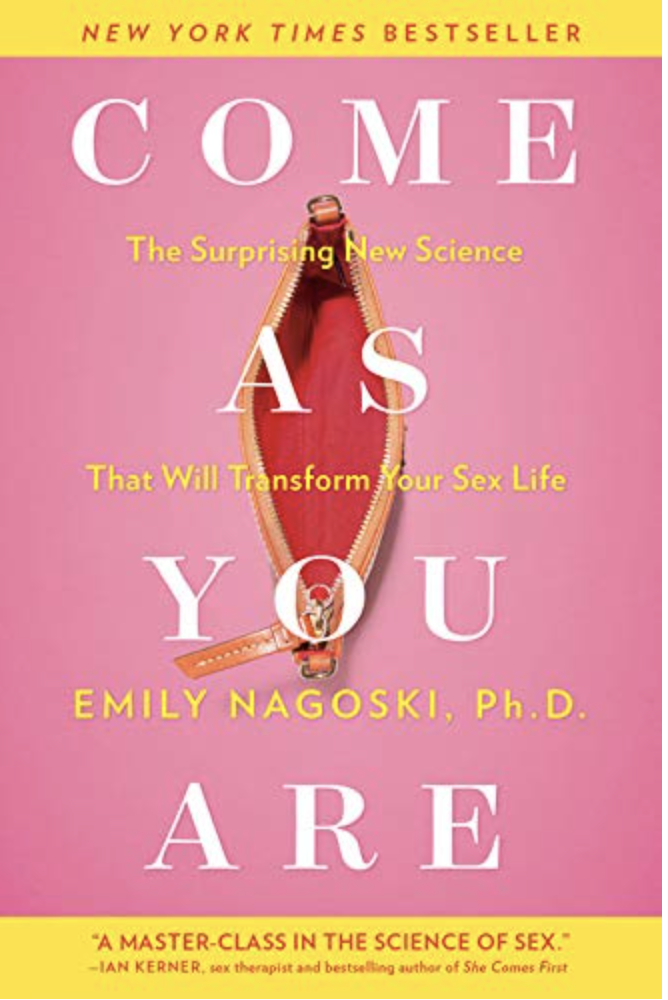
Come As You Are is about female sexuality and the science and psychology of the female orgasm. I lost my bookmark so I can’t find the ending but it’s brilliant so far and I’m sure it’ll blow your mind and make your leg shake.
Kurt Cobain’s Come As You Are is not about coming, unlike Smells Like Teen Spirit, which might be.
Grohl says that Cobain once told him that the melody comes first, the lyrics second. It makes sense but it also makes him sound “a bit Noel Gallagher”, which is unfair.
In Noel’s hands, words get disconnected from meaning faster than cannonballs walking slowly down halls. Kurt obscures meaning but he relishes wordplay - “Hello, how low?”, “Gotta find a way, a better way, I had better wait”, “Every line ends in rhyme” etc - and has an ear for a killer phrase (“And I swear that I don't have a gun”).
Come As You Are appears to be about the pressures we put on friends: we love them, but we wish they could be better. “Come as you are,” we say, but we mean “as you were, as I want you to be”.
We’re contradictory and controlling: “Take your time,” we say, but we mean, “hurry up, don't be late”.
There’s a lot of web chat that the line “Come doused in mud, soaked in bleach” comes from a public health campaign in Seattle urging heroin users to clean their needles. I can’t find any evidence of this, and it doesn’t sound like the language of a public health board, but if the allusion to heroin is deliberate maybe Come As You Are is about how Kurt felt judged, as a heroin user. People who say they want him around, but not when he’s on that shit. People who love him but want to change him.
I always thought the chorus was “Memory-uh” (ie “Take a rest as a friend/As an old memory-uh”) but the internet has agreed it’s “Memoria”. Memoria = a reminder, an artificial aid to memory. Kurt: feeling like a prop, someone who reminds you of good times, but is painful to look at now, someone you’re wary of.
And him explaining: don’t worry, I’m fine, I’m still me, I’m not dangerous. I mean, it’s not like I have a gun or anything.
Buy Come As You Are at Amazon.
The Boys Of Summer
The Boys Of Summer
By Roger Kahn (1972)
+ Don Henley (1984)
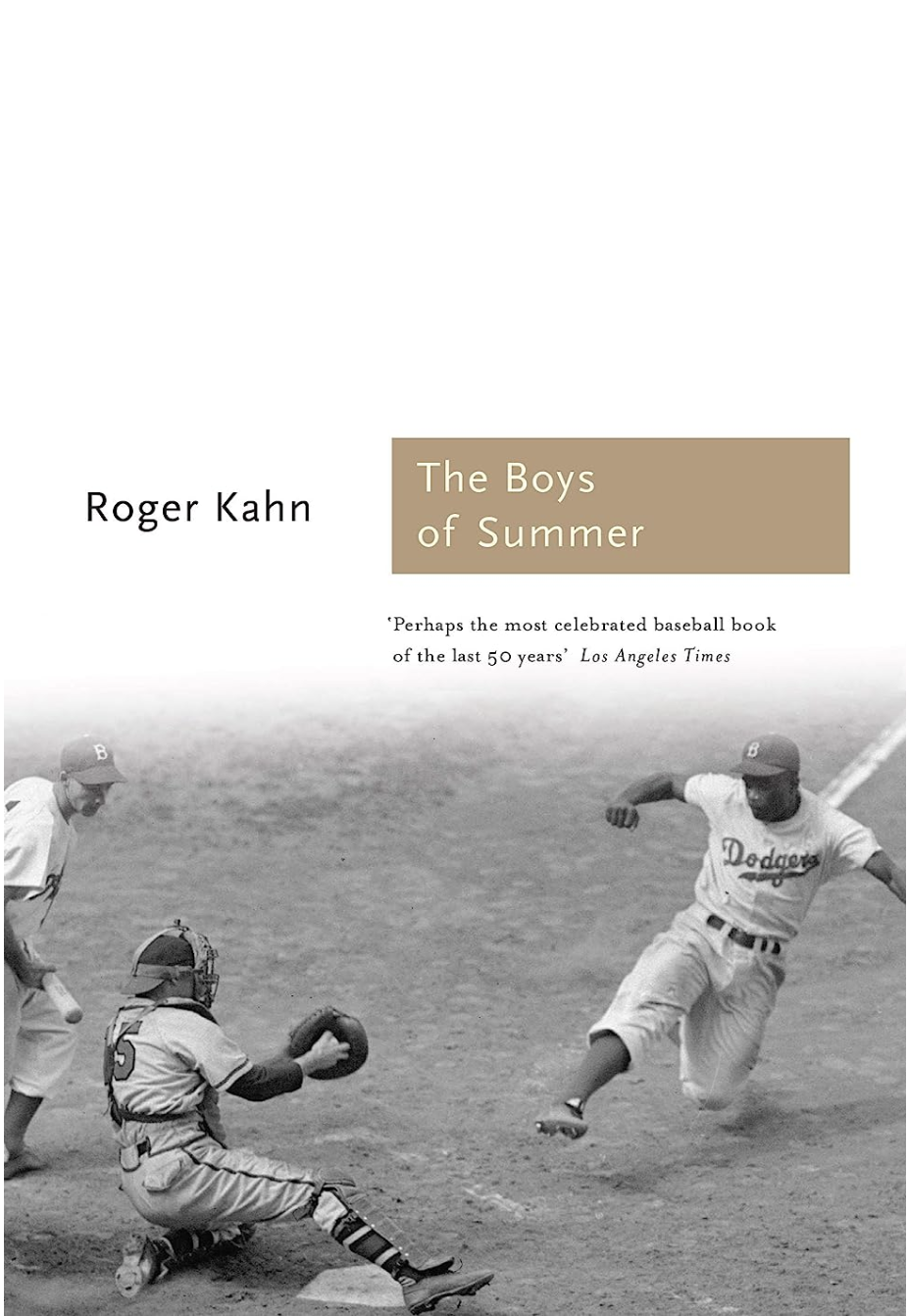
Expectations were not high for The Boys of Summer: I mean, an Eagles’ offshoot, sung by a drummer - a drummer who’d been all over the papers just four years earlier when a couple of teenage hookers were found overdosing in his mansion?
Don Henley nicked the title from the best-selling and beloved sports book by Roger Kahn and wrote lyrics about how sad it feels to be a millionaire rock star remembering the good old days before teenagers turned blue in your bathroom and everyone suspected you were some kind of perv.
Its elegant, elegiac music was written by Heartbreaker Mike Campbell who pitched it to Henley when he heard he was looking for songs, and if those songs just so happened to make Don seem deep and sensitive, then... perfect.
I was 13 when The Boys Of Summer came out: too young to feel nostalgic for summers past or relationships gone sour – or to get the reference to “a Deadhead sticker on a Cadillac” – but it still got me. It’s gorgeous, innit, and I think its success stems from its palatable surface-level-sadness, a lovely selfish little wallow we can all relate to. Because, yeah, Don is all wistful, wallowing in the what-could’ve-beens an’ that, but at the same time he’s a millionaire rock star, so we know it worked out alright (apart from the odd minor scandal that was definitely nothing to do with him).
His days of 16-year-old girls lolling around his mansion on cocaine and quaaludes were waaay behind him, by a couple of years or so – he wasn’t even on probation anymore! – and he was free to drive around LA brooding over lost loves.
Sure, he was going out with Maren Jensen, every-schoolboy’s-dream from Battlestar Galactica at the time, and he knows you should never look back – but fuck me if he can’t help it, he’s got such a big heart, the old softie.
He’s like the Jay Gatsby of AOR, borne back ceaselessly into the past, and The Boys of Summer is his green light at the end of the dock – an idealised romantic dream. If he just met his Daisy Buchanan everything would be alright.
And failing that, a couple of coked-up, daisy-chaining teenagers would have to do.
Buy The Boys Of Summer at Amazon.
For more 'songbooks' – books with the same names as songs with the same names as books – follow Scott on Instagram.
